





 One of Many Gaetan Barrette 9 years with Orgill
One of Many Pierre Lanouette 10 years with Orgill Western Quebec Rep
One of Many Gaetan Barrette 9 years with Orgill
One of Many Pierre Lanouette 10 years with Orgill Western Quebec Rep
Each of Orgill’s sales reps provide our dealers with individualized service to achieve collective success.


Count on your Orgill sales rep for:
• Focused attention & time
• Purchase planning & support
• Guidance with specialty programs, services & vendors
Looking to add value to your retail business, achieve your goals and grow your customer base? Create your own success story by joining the ACE Canada Dealer network and experience the benefits that come with being a part of the ACE Canada and Peavey Industries LP family.


ACE Canada Dealer service and support includes:
No Franchise fees
Tremendous buying power of multi-brand Canadian retail leader, Peavey Industries LP
Distribution Centres located in Red Deer, Alberta and London, Ontario
Retail focused programs
International ACE brand recognition
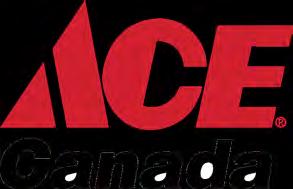

National marketing programs tailored to Canadian consumers
Dedicated ACE Canada Business Development teams
ACE Canada Dealer Buying Shows (Virtual and in person)
LBM Supply partnership with industry leading Sexton Group
Globally proven retail training programs
Are you a dealer considering converting to the Ace banner? We want to hear from you too – and can provide you with the information you need while highlighting the many benefits of joining the ACE Canada family.
330 Bay Street, Suite 1400, Toronto, ON
PRESIDENT Michael McLarney mike@hardlines.ca
EDITOR


Steve Payne steve@hardlines.ca
ASSOCIATE EDITOR
Geoff McLarney geoff@hardlines.ca
CONTRIBUTING WRITER
John Caulfield
ADMINISTRATIVE ASSISTANT
Jillian Macleod jillian@hardlines.ca
VICE PRESIDENT & PUBLISHER
David Chestnut david@hardlines.ca
MARKETING & EVENTS MANAGER
Michelle Porter michelle@hardlines.ca
ART DIRECTOR
Shawn Samson TwoCreative.ca
ACCOUNTING accounting@hardlines.ca
COVER STORY PHOTOGRAPHY

Jozef Povazan povazanphotography.com
HardlinesHomeImprovementQuarterlyis published four times a year by Hardlines Inc., 330 Bay Street, Suite 1400, Toronto, ON M5H 2S8. $25 per issue or $90 per year for Canada. Subscriptions to the Continental United States: $105 per year and $35 per issue. All other countries: $130 per year. (Air mail $60 per year additional.)
Canadian Publications Mail Agreement # 42175020
POSTMASTER: Send address changes to Hardlines Home Improvement Quarterly, 1550 Caterpillar Rd, Mississauga, ON L4X 1E7.
All editorial contents copyrighted 2023 by Hardlines Inc. No content may be reproduced without prior permission of the publisher.
Join a completely Dealer-Owned company today.
Dealers share and participate equally without the influence of any external shareholders. Harness our massive buying power, comprehensive distribution, national brand recognition and marketing support.
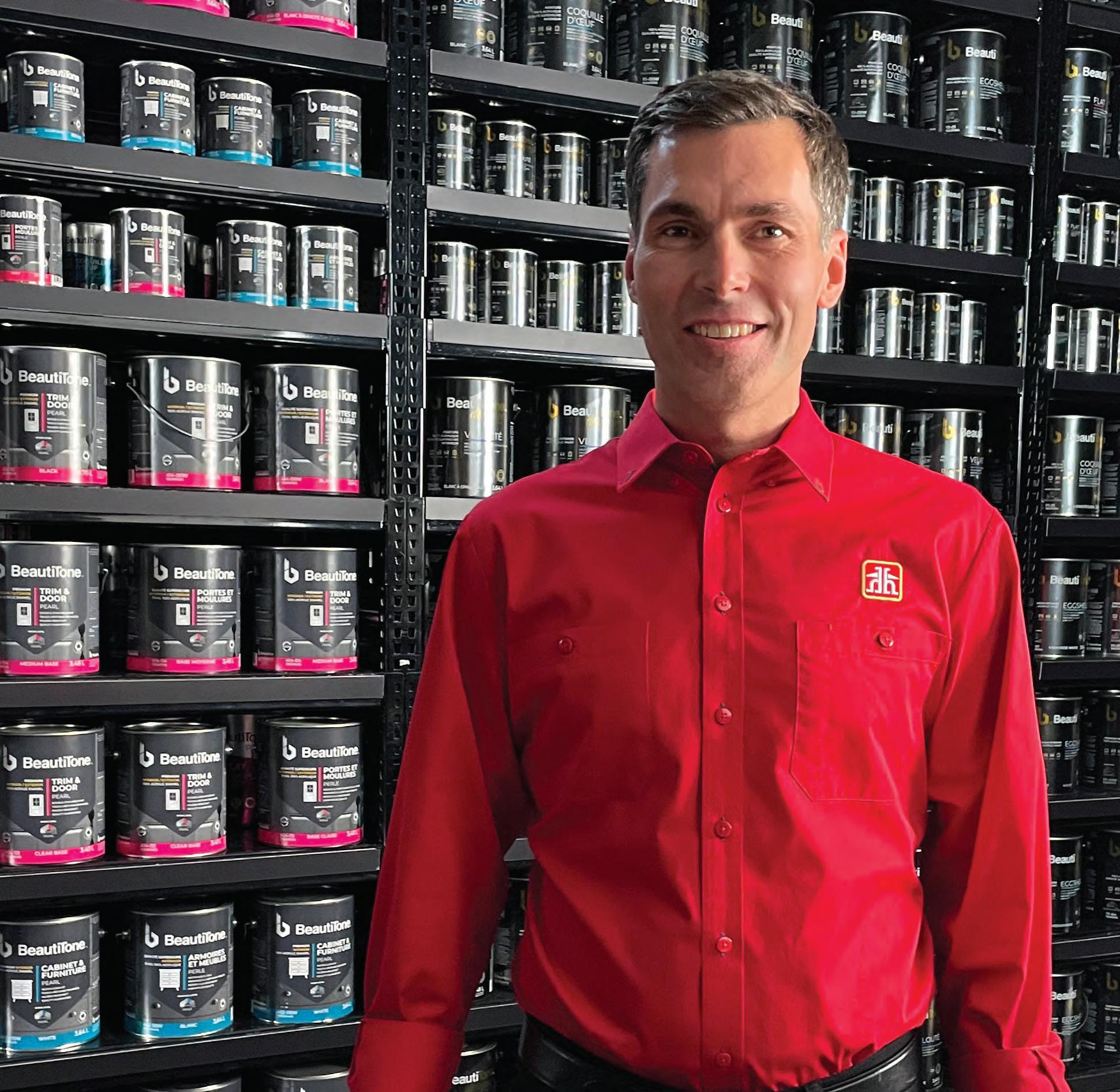

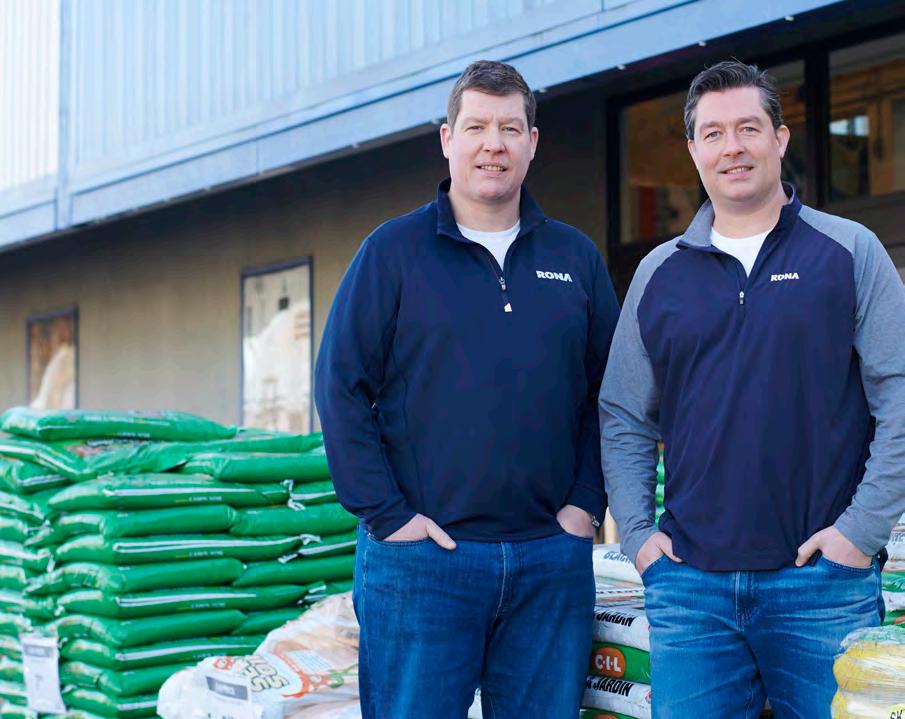








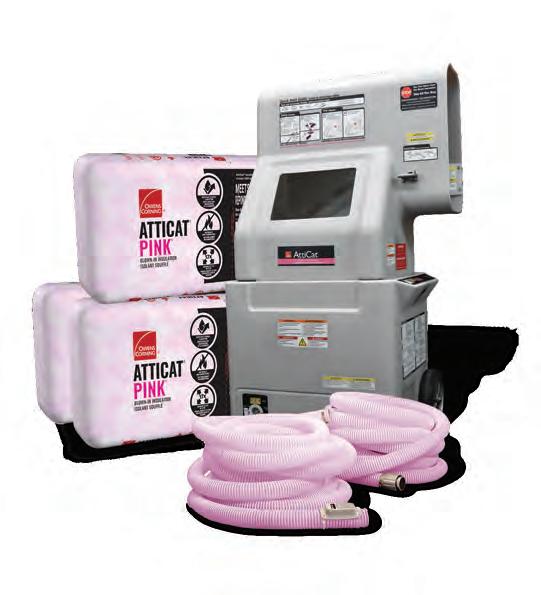
Once a “nice to have” value-added option, loyalty programs in the retail home improvement industry have become—in their 65-year history— fundamental to basic marketing. Michael McLarney has a special feature on loyalty programs in this issue, starting on page 26.

These programs are so crucial to being a leading retailer, that most groups at the top of our industry have changed their loyalty programs at least once in the past 30 years. Everyone is looking for that loyalty program edge.
About that 65-year reference? That’s how many years Canadian Tire money has been in existence since it was launched in 1958 at a gas bar in midtown Toronto.
Canadian Tire is still our industry’s leader in loyalty programs. Just before press time it announced that its staggeringly successful Triangle Rewards program would have a sister, fee-based program that will earn customers all kinds of souped-up rewards.
The retailer claims that 70 percent of Canadian households are Triangle members. That’s a success story to rival that from any sector of retailing, anywhere in the world.
At the other end of the spectrum, sadly, Loyalty Ventures, the U.S.-based parent of Air Miles Canada for several decades, sought bankruptcy protection in the U.S. and Canada just before press time.
The Bank of Montreal has agreed to buy the venerable program out. The bank was already Air Miles’ largest partner. Under the sale process, a better offer could still emerge.
Major players like RONA/Lowe’s, Rexall, and the Liquor Control Board of Ontario, dumped Air Miles over the past two years. They joined the Sobey’s and Safeway grocery chains, Staples, Old Navy, and more in parachuting out. TIMBER MART and Kent Building Supplies, in our industry, are remaining on board.
As our article points out, loyalty programs have changed their essential focus over the years. Once seen as largely a way to encourage, well, loyalty, the programs are now a way to collect priceless information on the shopping habits of consumers.
And it’s not necessary to be affiliated with a program that brings in all kinds of other “partners.” At least, not anymore. Canadian Tire has proved that. Its baselevel Triangle Rewards program is strictly for its own various banners. And the information that Canadian Tire is pulling out of its program shows the way forward for all retailers.
We’ve known all along it would come to this.
It’s all about the data.
STEVE PAYNE, EDITOR
Very few home improvement banners are still with the loyalty programs they started out with
Loyalty Ventures, Air Miles’ parent company, has sought bankruptcy protection.
On Feb. 3, the sale of the Lowe’s Canada businesses to Sycamore Partners, a New York City-based private equity firm, closed. Just 34 days later, RONA inc. (as the company will now be known), announced that Tony Cioffi, president since January 2022, had left the company. His replacement—on an “interim CEO” basis—is Garry Senecal, a longstanding Loblaw senior executive.
All of Lowe’s Canada’s former retail locations, including some 450 stores under RONA, Lowe’s, Réno-Dépôt, and Dick’s Lumber brands, are now owned by Sycamore and will be run out of RONA’s headquarters in Boucherville, Que. The price was $400 million in cash (USD) plus an undisclosed performance incentive.

The deal returns RONA to its roots as a private company for the first time since it went public in 2002. Sycamore, which owns other major retail brands such as Loft/Ann Taylor, Nine West, Talbots, Aeropostale, and Staples, has the means to make significant investments in its newest
Canadian home improvement brands.
Cioffi joined RONA in 2016 as senior vice president, finance, and group financial officer. His interim replacement, Senecal, filled senior executive roles at Loblaw for almost 13 years. He was at various times: chief customer officer, former president of the market division, and executive vice president, conventional division. He was a past memer of the Loblaw management board.
Founded in Quebec in 1939 as a co-operative, RONA is once again a privately-owned company—for the first time since it went public in 2002. Meanwhile, the 61 Lowe’sbannered big boxes within the RONA organization will remain open, but eventually
all of those Lowe’s stores in Canada will be converted to the RONA banner. For now, RONA banners will still offer Lowe’s private brands, provide customer financing, and honour warranties and gift cards issued by Lowe’s stores in Canada.
In addition, the company says it will maintain “a strong commitment to its RONA affiliated dealer network and to its Canadian- and Quebec-based vendors, including through its ongoing involvement with the ‘Well Made Here’ initiative, intended to encourage the purchase of domestically manufactured quality products.”
Depot Canada at the beginning of 2016. Along the way, Kinnaird earned an MBA at Queen’s University, Kingston, Ont.
Jeff Kinnaird, the Canadian who was the top merchant at The Home Depot in Atlanta, has left the company. He has been replaced by William “Billy” Bastek, who was promoted to the EVP merchandising position, effective immediately.

Formerly the president of The Home Depot Canada, Kinnaird moved to Atlanta in October 2020 to head up merchandising

at the retailer’s head office. Before that, he spent almost five years running the Canadian division of the company. Kinnaird is well known for his modest beginnings at the company: he got his start working in the yard at the Home Depot store in Richmond, B.C. From there, he worked his way up to the VP merchandising role in 2011, before taking the top job at Home
“Jeff has made significant contributions to The Home Depot since starting in the lumber aisle nearly 27 years ago and progressing through every role in our stores,” said Ted Decker, chair, president, and CEO of The Home Depot, in a release. “His leadership of our Canadian division, and more recently of our merchandising, marketing, and online
Sollio Cooperative Group, the parent company of BMR Group, held its 101st annual general meeting in late February in Quebec City. Sollio’s top executives presented a summary of the co-op’s annual report. Sales of $8.9 billion in 2022 were up $1 billion from the previous year. However, Sollio posted a loss of $337.5 million, compared with a $21.5 million loss in 2021.
Olymel, Sollio’s food business, in particular faced challenges from a labour shortage and a backlog of hogs awaiting slaughter. While Sollio’s Ag division swung from a loss to earnings of $19.6 million, the biggest strength of the co-op in 2022 was at BMR, which logged its best results in 55 years. Earnings soared to $53.8 million, a $25.6 million increase from $28.2 million in the previous fiscal year. Higher sales, resulting from increased commodity prices, contributed to what Sollio president Ghislain Gervais called “an excellent year for BMR.”
Sollio CEO Pascal Houle said BMR has fulfilled the aspirations that the company, then known as La Coop fédérée, had when it acquired the chain in 2013. Houle himself
businesses, is greatly appreciated.”
“Jeff has been a champion of our culture and values,” Decker continued, “and I would like to thank him for his hard work and numerous contributions across his career. I wish him well in his future endeavours.”
The reasons for Kinnaird’s departure are not immediately clear. The release stated simply that Kinnaird had “decided to leave The Home Depot.” Kinnaird has confirmed to Hardlines that his next steps include
joined BMR that year as vice president, retail, rising through the ranks until he was named CEO in 2015. He has held that role with the parent company since 2021.

“When the co-op bought BMR in 2013, the main target was to diversify the co-op,” Houle told Hardlines. “It was really important in 2013 and it’s really important now.”
Alexandre Lefebvre, Houle’s successor as CEO of BMR, agreed that “the crisis we experienced over the last year with pork highlighted the need to diversify, and BMR brought that diversity.” He underscored that Houle “comes from the BMR family; it’s very close to his heart.”
returning to Canada.
Bastek, a 33-year veteran of the company, has served in several leadership positions at Home Depot, most recently as senior vice president of hardlines. He began his career in 1989 at HD Supply (formerly Maintenance Warehouse), which was acquired by Home Depot in 1997. His titles have included global product merchant, senior merchant, divisional merchandise manager, and merchandising vice president for building materials.
RONA inc. has welcomed father and son Blake and Bret Drew, owners of two hardware stores in southwestern Ontario, to its network of affiliated dealers. The stores, in the neighbouring communities of Comber and Tilbury, will be renovated and will expand their offering to LBM products. Ducharme et Frère inc., owned by Philippe Mayrand, has purchased RONA Farnham, a corporate store in Farnham. With this acquisition, Mayrand becomes the owner of three RONA affiliated stores in the Montérégie region.
Le Magasin du Fermier, a hardware and ag supply retailer in Luskville, Que., has joined the Home Hardware banner. Dealer-owner Jonathan Crevier’s mother and grandfather founded the business in 2009.
Celebrating its 60th anniversary this year, Castle Building Centres Group has added a new member to its commercial building supply division. Urban Insulation Supply of Casselman, Ont., was founded in 2019 by Gaétan and Pierrette Dazé. Hodgins Lumber, with two locations in southwestern Ontario, has also joined the group. Brock and Jordan Hodgins represent the third generation of the family to operate the business. In New Brunswick, Fredericton Direct Charge Co-op has joined Castle. The consumer co-operative building materials business operates with over 10,000 members.
Peavey Industries is building a new Peavey Mart store, in Steinbach, Man. It joins existing stores in the province in Winnipeg, Brandon, Swan River, and Winkler. The 28,800-square-foot store will feature a 1,440-square-foot greenhouse and is expected to employ up to 40 people. A soft opening is anticipated for spring 2024.
Imperial Manufacturing Group of Richibucto, NB., owner of Pointe-Claire Steel, has purchased Norbel Metal Service Inc., making it part of Pointe-Claire Steel. The Norbel Metal management team, led by Michael and Matthew Guglielmin, will continue to manage the Norbel Metal operations. All customers will continue to be served from Norbel Metal’s Etobicoke, Ont., location.
IMBER MART hosted its first-ever hybrid national buying show Feb. 15-17, in-person at the Toronto Congress Centre and via a cloud-based platform for virtual attendees.
“It’s finally bringing people together,” said TIMBER MART president and CEO Bernie Owens of the face-to-face event. “Everyone is so tired of Covid. It’s long overdue.” He said that response from dealers was strong for the show, with delegates coming in from every part of the country.
In addition to the hundreds of TIMBER MART dealers in attendance, 270 vendor booths filled the 70,000-square-foot show. The hybrid nature of the event meant that dealers at home could use an app to interact in real time with vendors on the show floor. They had the ability to set up online
meetings and generate purchases, and to join chats with attendees.
The show floor featured some innovations of its own, including a new pallet-buy area that presented a wide range of products for sale in pallet quantities. And of course, special buys only available at the show were a highlight. “The vendors have really stepped up here,” Owens said.
The centre of the show floor was a hub for TIMBER MART’s own services and programs. These included: TIMBER MART LBM Distribution, dealer marketing, merchandising, and banner support.
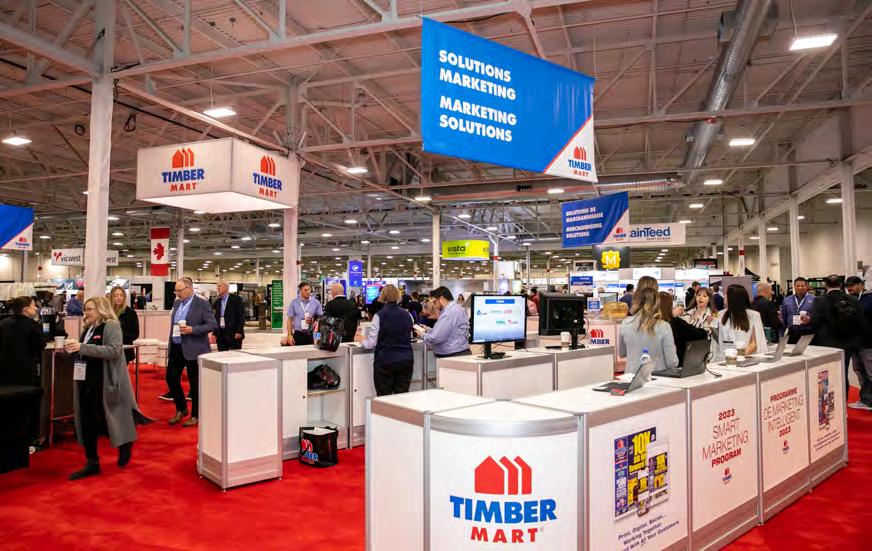
To highlight TIMBER MART’s partnership with the Canadian Football League, the Grey Cup was prominently positioned on the show floor for photo opportunities.
Centre de rénovation Senneterre is the latest dealer to join BMR Group. The business has served the Abitibi-Témiscamingue region of Quebec since the 1960s and was bought by the Allaire family in 2013. The owners are Eric and Olivier Allaire.
Federated Co-op is reprising its Co-op Community Spaces Program. This year, $1 million is available to support capital projects dedicated to recreation, environmental conservation, and urban agriculture. The program invests in local projects throughout the Prairies that will protect, beautify, and improve local spaces.


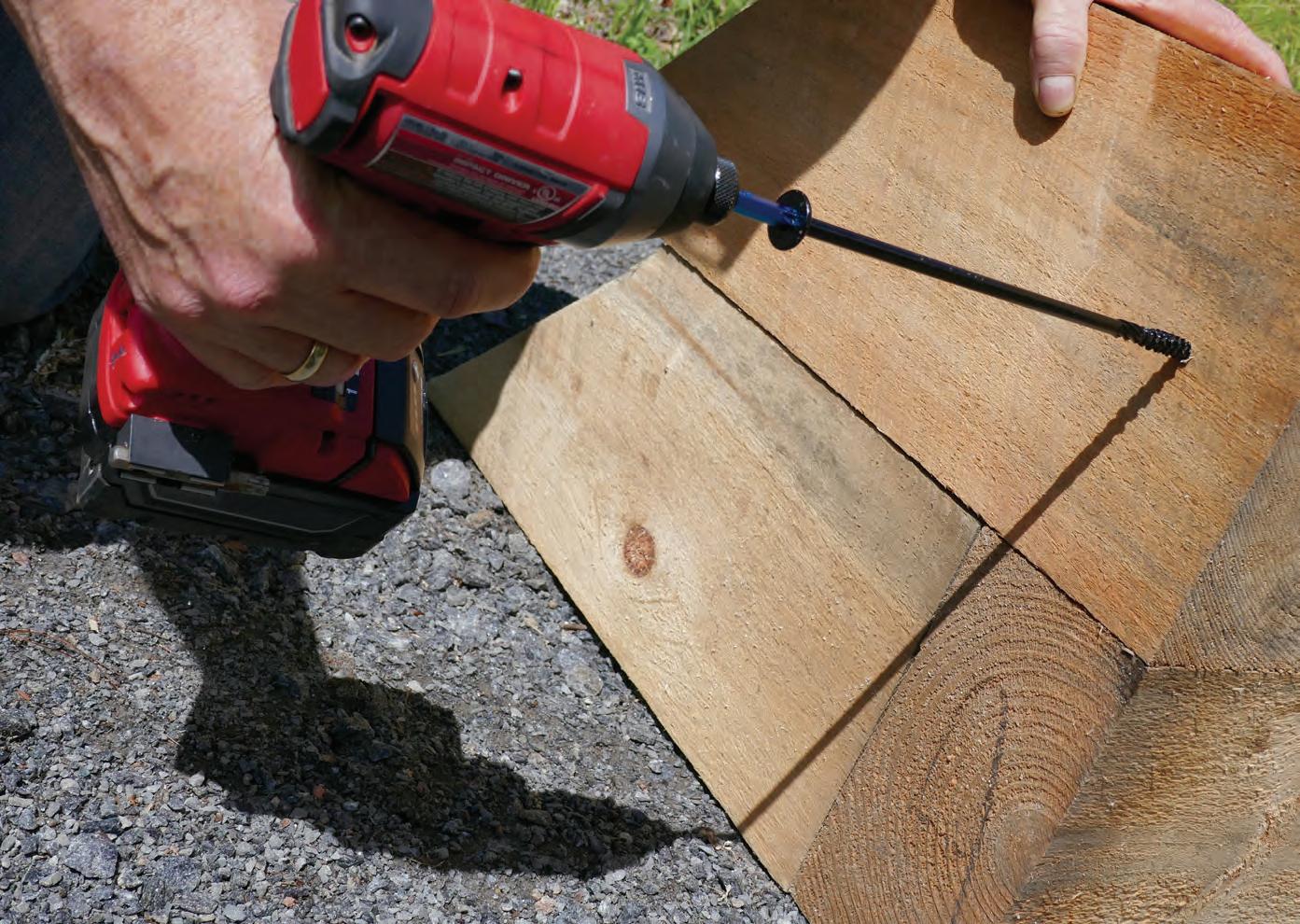











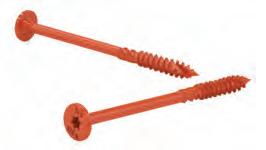
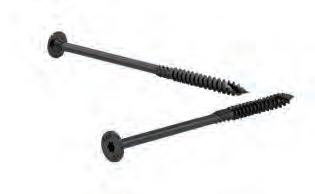





The Hardlines Conference in 2023 will have a fresh look—and a new location. This year, the annual summit for industry retailers, executives and vendors is moving to Whistler, B.C., on Oct. 17 and 18. Working closely with the Building Supply Industry Association of British Columbia, the Hardlines Conference will be held at one of the most stunning locations on the planet—the luxurious Fairmont Chateau Whistler resort, located at the base of Blackcomb Mountain.
And if that isn’t reason enough to add this event to your calendar, the lineup of speakers who have already confirmed is guaranteed to make this a must-attend event.
Speakers confirmed so far:
• Jean-Sébastien Lamoureux, Senior Vice President, RONA Affiliates, Wholesale and Public Affairs

• Geneviève Gagnon, President, Gagnon La Grande Quincaillerie, Evolution Distribution and Evolution Structures


• Cody Smith, Director of Home and Building Solutions, Federated Co-operatives Ltd.
• Jim Inglis, Retail Consultant, former Home Depot executive


• Dr. Kyle Murray, Acting Dean of the University of Alberta School of Business

• Zaida Fazlic , Vice President, People and Culture, Taiga Building Products Ltd.
• Peter Norman, Vice President and Chief Economist, Altus Group
• Dan Tratensek, COO and Publisher, North American Hardware and Paint Association

The conference will also be the venue for the industry’s Outstanding Retailer Awards, which honour the best of Canada’s hardware and home improvement retailers from coast to coast.
With the involvement of the BSIA, the Hardlines Conference will co-locate with
a mini-trade show, the BSIA New Product Showcase, offering a platform for suppliers and other vendors to present their newest innovations. The association will host its members in Whistler to honour the BSIA Orion Award winners as well.
“After attending many successful and enriching Hardlines Conferences in central Canada over the past years, we are excited to be working with the Hardlines Team in Whistler this year,” said Thomas Foreman, president of the BSIA of British Columbia.


“We look forward to offering our west coast members an opportunity to join this informative and worthwhile national event.”
This year’s conference will feature some welcome traditions. The RONA Pub Night will take place Oct. 16, the night before the conference begins, to welcome delegates. The Home Hardware Cocktail Reception will precede the Outstanding Retail Awards Gala on Oct. 17. See pages 24 and 25 for more, including the 30 percent registration discount for dealers.


With 34 stores in Alberta, UFA Farm & Ranch Supply has made keeping those stores up to date an ongoing mission. And this year, the co-operative is remodelling three of its outlets in its home province—in Stettler, Airdrie, and Fort Saskatchewan.

“Our customers can see we’re investing in the business and supporting the communities we serve,” said Glenn Bingley, the company’s vice president of agribusiness and supply chain. He told Hardlines that the newest changes are more than tweaks, calling them “transformational.” The remodels include investments in new millwork, flooring, and lighting.
The Alberta farm and ranch co-operative is also making moves on the digital side of its business, with the launch of an expanded online platform. Called MarketPLACE, it resides on the co-op’s UFA.com site, and is the result of a partnership with Mirakl, an enterprise marketplace technology provider. The platform was further customized by UFA’s own digital, product strategy, and tech teams.
Another important part of the business for UFA’s operations is its cardlocks. Unlike the farm and hardware stores, which are
in Alberta only, the co-operative has been expanding their presence in Saskatchewan with several additional petroleum locations as part of a multi-year strategy, Bingley says.
Meanwhile, the focus for the Farm & Ranch Supply stores is on remodeling and investing in UFA’s existing store network, and expanding assortments through product line reviews. In Red Deer, the retailer is relocating the existing store and implementing a new build, a 16,000-square-foot outlet with 12,000 square feet of retail space on six acres. A chem shed will also be located on site, as well as a three-bay drivethrough warehouse. “We are excited about the new location,” says Bingley.
The site will also include a cardlock that will feature state-of-the-art, high-speed pumps with clear and dyed fuel, wide lanes, DEF, and Dieselex Gold, UFA’s exclusive
premium diesel offering.
Members and customers will be able to access the new Farm Store and Cardlock, conveniently located in Gasoline Alley in the southwest corner of the city, accessible for drivers travelling either way on the QE2 and those on the west side coming from Highway 2A.
Construction on the project will begin this year, with an anticipated opening in late 2024. During construction, the current Farm & Ranch Supply store in Red Deer will remain open. Once the new site opens, it will be closed, but the Bar W office and shop will continue to operate from the current location, as will UFA’s current Cardlock.
Will the Farm and Ranch stores follow the cardlocks into Saskatchewan? “Not at this time, but we definitely see expansion potential,” Bingley says.
Industrial and commercial buying group AD reported record results for 2022. Sales by owner-members for the year reached $74.9 billion (all figures USD), a 28 percent increase from the previous year. Purchases by member companies from AD supplier partners were $20.3 billion.
The group touts itself as the largest contractor and industrial products wholesale
buying group in North America. It provides independent industrial, commercial, and institutional (ICI) distributors and manufacturers with products and services.
By country, same-store sales of U.S. members were up 21 percent; Canada same-store member sales increased by eight percent and Mexico same-store sales increased by 19 percent.
AD’s Canadian operations were established in 2021 as a business unit within AD, bringing together four Canadian AD divisions under one umbrella. The Canadian division was expanded to include the LBM buying group TORBSA in July 2022. That partnership resulted in the creation of AD Building Supplies - Canada Division.
Today, AD Canada consists of four divisions: AD Plumbing & Heating, Electrical, Industrial and Safety, and Building Supplies. Collectively, the Canadian presence now accounts for over 20 percent of AD’s total business.
AD GROUP REPORTS 28 PERCENT INCREASE IN 2022 MEMBER SALES



One of the showrooms at the IKEA in Calgary is the work of an Indigenous artist. Lana Manyfingers drew on her Blackfoot and Cree roots to create a space that reflects her own culture and family history. “It’s a fantastic opportunity to showcase my ancestry, my family, my culture, and my love for Mohkinstis—the city of Calgary.”
Items in the showroom include a coffee table with a medicine wheel pattern, traditional medicines and herbs, and items from Manyfingers’ own home and life, reflecting the importance of her family and culture.
While having Swedish roots, IKEA stresses that it is committed to Indigenous reconciliation. In conversation with Global News in Calgary, IKEA Calgary manager Isabelle Brigliadori said this concept also symbolizes the value of reconciliation. “When we looked at where our building sits, it’s on Treaty land. We need to understand and educate ourselves, because we weren’t as educated as we needed to be.”
IKEA Canada has made other efforts to embrace indigenous culture. Through autumn of last year, it hosted an art installation in all its stores by The Canadian Library that honoured thousands of murdered and missing Indigenous women and children. Each installation features a bookcase filled with books covered in
Indigenous-inspired fabric. Instead of titles, the book spines noted the individual names of missing Indigenous women and children.
The Canadian Library is a grassroots art installation project that serves as a memorial to all First Nations, Metis, and Inuit women and children who have suffered abuse, lost their lives due to brutality, or have been forgotten.
The federal privacy watchdog rebuked Home Depot Canada in January for failing to get customer consent before sharing personal data. The retailer shared info with Meta, the owner of Facebook and Instagram, the government agency said.
After investigating Home Depot Canada’s sharing of data from customers who elected to receive an emailed receipt between 2018 and October 2022, the Office of the Privacy Commissioner issued a report detailing the means by which Home Depot Canada shared the personal data. Commissioner Philippe Dufresne said explicit prior consent should have been sought from customers.
According to the Privacy Commission,
“Home Depot confirmed to our office that it was in fact sending in-store customers’ data to Meta through a business tool known as ‘Offline Conversions,’ which allows businesses to measure the effectiveness of Meta ads. Specifically, Home Depot forwarded customers’ hashed e-mail addresses and off-line purchase details to Meta when the customers provided their email address to Home Depot at checkout to obtain an e-receipt.”
“Meta then matches the email to the customer’s Facebook account,” the report continues. “If the customer has a Facebook account, Meta compares offline purchase information to ads delivered to the customer on Facebook, to measure effectiveness
of those ads, and provides results of that analysis back to Home Depot in the form of an aggregated report. Meta can also use the customer’s information for its own business purposes, including targeted advertising, unrelated to Home Depot.”
The Privacy Commission has asserted that this process did not include the necessary “implied consent” from customers.
In a statement, Home Depot Canada said that Meta’s analytics tool was used for “only non-sensitive information” and that “as a precaution we stopped using the tool once the Office of the Privacy Commissioner of Canada expressed concerns about it in October 2022.”
Since the news was released, a Regina lawyer has launched a class action lawsuit on behalf of some of the affected Home Depot customers.

Our strength as a buying group is built on four major advantages: We’re a dedicated team of industry professionals focused on your success. We negotiate competitive programs and leverage our strong relationships with vendors to resolve any issues quickly for you. We have a first-class accounting team that promptly delivers accurate rebate payments as promised.

Princess Auto continues to add stores this year to its network of hardware and automotive outlets across the country.
The privately-owned Winnipeg-based retailer has a store opening in Abbotsford, B.C., slated for the spring. It will be its seventh location in the province. “It’s great to be able to serve our B.C. customers with another store,” said Marc-André Fournier, senior vice president, global sourcing, at Princess Auto. “Abbotsford’s main industries are agriculture, transportation, and manufacturing. We’re happy to bring our unique assortment of products to serve those industries in Abbotsford and the surrounding communities.”
Catering to everyone from tradespeople to hobbyists, home mechanics and DIYers,
the Abbotsford location will be 43,090 square feet in size.
The western expansion efforts follow Princess Auto’s additions to the Quebec market with an opening in Sherbrooke in the fall of 2022. An upcoming opening in Chicoutimi was scheduled for March 14. Those will be Princess Auto’s fifth and sixth locations in that province. The other Quebec stores are in Saint-Jérôme, Laval,
Saint-Hubert, and Lévis. In fact, the SaintJérôme store was the retailer’s first in the province. Built in 2019, it was recently expanded with the addition of another 5,000 square feet of space.
In northern Ontario, a 35,000-square foot Princess Auto store has been built in Sault Ste. Marie. It was also slated for a March opening. The retailer now has over 50 stores across the country.
In February, Canadian Tire Corporation released its fourth quarter and full-year results for 2022.
Consolidated retail sales for the year (excluding petroleum) were $19.249 billion—up 5.4 percent, or $984.2 million in 2021. Including petroleum in a year that included torrid fuel spikes, that year-overyear increase in revenue was 9.0 per cent. However, sales by Canadian Tire stores, which were strong during the first half of the year, eased during the last six months. Sales and comps in the fourth quarter were flat compared with the same period a year earlier.
Canadian Tire said it benefited from an “improved omnichannel experience” in which Triangle Loyalty member sales were up eight percent, with 11.3 million active members in
the program and loyalty penetration of close to 60 per cent in 2022.
As the year progressed, Triangle member sales at Canadian Tire stores especially were driven by customers looking for deals. Shoppers were trading down, especially in essential categories, a trend that is expected to continue. “We are not seeing a meaningful shift in our discount mix, but we grew categories we would deem as essentials, offset by a decline in non-essentials,” said Greg Hicks, president and CEO of Canadian Tire Corp. in a call to analysts.
He added that the outlook is more cautious moving through 2023. “Given the macro backdrop combined with what we are seeing in the performance of our business, we are expecting a more constrained demand
environment as we look forward, especially in the first six months of this year.”
One of those categories considered essential is pet. During the year, Canadian Tire continued to expand the category, including plans to roll out its dedicated PetCo store-within-a-store concept to 90 percent of Canadian Stores by the end of this summer.
In fact, sales of the retailer’s private label brands throughout all banners remained strong at 37.5 percent of total retail sales, with significant growth in the ProSeries and Forward With Design brands.
Customers will continue to look for more value in their spend, Hicks said, “and that’s where you can expect us to be laser focused in 2023.”
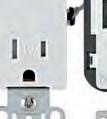

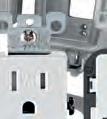





Make the time you spend relaxing, entertaining and working outdoors safer with Leviton’s full line of Code Compliant WeatherResistant (WR) products.

These are made with UV stabilized materials and have corrosion resistant screws and mounting strap that stand up to the weather’s harsh elements.




Learn more at Leviton.com









 BY GEOFF M c LARNEY
BY GEOFF M c LARNEY

Made with high-performance aluminum-clad vinyl, Jeld-Wen’s DF Hybrid windows offer unmatched efficiency, reliability, and crisp, eye-catching colours. In addition, the proprietary FiniShield technology protects against fading from UV rays as well as dents, dings, scratches and other damage. Plus, it helps make windows virtually maintenance-free.
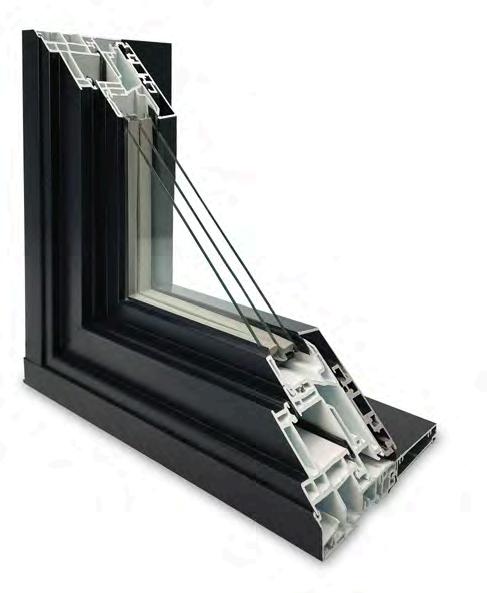
www.jeld-wen.ca

Kohltech’s innovative tilt-and-turn windows offer unmatched versatility, combining the best features of casement, fixed, and tilting designs. These windows tilt inward from the top for draft-free ventilation even during rain or, with a simple turn of the handle, open inward just like a door for maximum ventilation and easy cleaning.
www.kohltech.com
Jeld-Wen’s moulded wood composite interior doors are available in a variety of styles and finishes, including smooth or textured woodgrain, and they come primed, so you can easily paint and customize. Homeowners have the option of a hollow, solid particleboard, or solid mineral core. Moulded cores can be upgraded with ProCore construction to withstand dents and dings, optimize fire safety, and cut sound transmission by as much as half.
www.jeld-wen.ca
A door for today’s modern design and construction should do more – it should improve air quality and reduce room-to-room noise transmission.

Lynden Door’s VanAir Ventilated doors do just that. VanAir represents one of the most significant advancements in doors in recent history and was designed to improve comfort and well-being in your living spaces.
www.lyndendoor.com
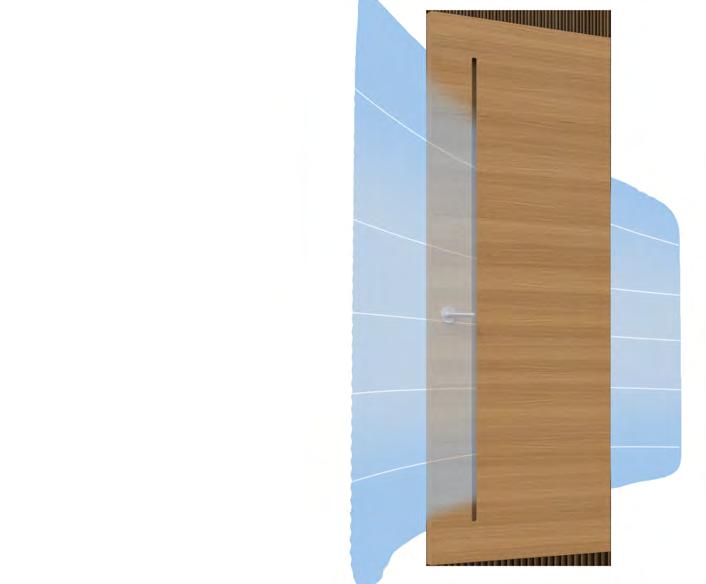
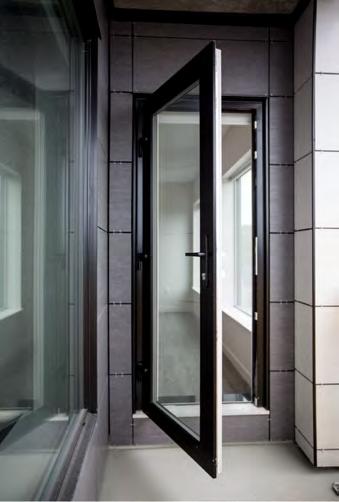
The Kohltech Supreme PVC Swing Door is a superior quality door with the versatility of creating a beautiful main entrance or an attractive patio door. Well-tested in harsh climates, the interior and exterior tempered glass provide four to five times more strength than competitors. This system offers exceptional sound abatement properties, minimal maintenance, and an excellent barrier against wind and water no matter how strong the storm.
www.kohltech.com
Inspired by Spanish Colonial design, MasterGrain’s Esperanza door features clean, geometric patterns using gold inlays and a matching elongated door pull bar that elevates any contemporary or transitional home. Complementing the design is a high-density, CFC-free polyurethane foam core encased in fibreglass door skins that are made using Nickel Vapour Deposition (NVD) technology, a process exclusive to MasterGrain.

www.mastergrain.com
MasterGrain’s Thomas door is a re-imagined take on the classic herringbone pattern, influenced by mid-century modern design. It features sleek lines and a bounding perimeter that accentuate its striking features. What lies beneath is high-density, CFC-free polyurethane foam core encased in fibreglass door skins that are made using MasterGrain’s NVD technology.

www.mastergrain.com
From Lynden Door, StileLine’s European-influenced sketch face designs showcase the beauty of wood veneers and create a bold, modern look. StileLine is available in Maple, Walnut, Mahogany, and Oak veneers. A ClearLine factory finish offers a state-of-the-art VOC-free, ultraviolet cured clear protection for these stunning door designs.
www.lyndendoor.com

will be no holiday in the mountains. It will be so much more.
Two days of presentations in scenic Whistler, B.C., featuring some of the world’s leading retail leaders. Plus networking with dealers and industry leaders from across Canada.

October 17 & 18, 2023
WHISTLER, BRITISH COLUMBIA hardlinesconference.ca










When Rob Wilbrink was brought on to work at Lansing Buildall in 1995, that company had lost a million dollars in the previous year. Wilbrink was hired to staunch the bleeding. One of the first things he looked at was the company’s relationship with the Air Miles rewards program.
At the time, the country was riding out a recession that was taking its toll on retailers. Lansing, then a family-owned retailer with nine stores in the Toronto market, was getting hammered by economic factors— along with the arrival of the first big box stores in Canada.
Wilbrink, who later went on to become the founder and chair of BMF, the store design and fixturing company based in Burlington, Ont., brought with him a background in consumer packaged goods. He came fully prepared to dig in to his new role.
At the time, the popularity of Air Miles among Lansing customers was not that high. Air Miles was only a couple of years old in Canada, and customers did not often have their cards ready at checkout. It was immediately clear to Wilbrink that the points program was far from top of mind for them. At the same time, Ontario’s exclusive liquor purveyor, the Liquor Control Board of Ontario, had just adopted the program. With a bigger budget to back its launch, the LCBO was sending out Air Miles cards to customers throughout the province.
“So card usage went way up from what it was before,” Wilbrink recalls, “but our business wasn’t going up. It was flat.” With more people tapping into Air Miles, and no additional sales to show for it, the program was starting to cost Lansing a lot more money. “We did an exit survey of our customers to find out what was important to them. Service and selection were at the top of list. Air Miles was number ten, at the bottom of the list.”
The executive team at Lansing had to review the whole program. “Why were we spending over $1 million on this a year? And it was going to go up with the LCBO launch and wider usage in general,” Wilbrink recalled. “It wasn’t really augmenting our business.”
With the value of the Air Miles program being diluted by other competitors, Wilbrink says it was hard to keep justifying it. “It was not seen as a competitive advantage because everyone was using it, so it became a competitive disadvantage.”

Six years later, Lansing was purchased by RONA. And as fate would have it, the stores ended up taking on Air Miles again as part of RONA’s loyalty partnership.
But that was then. The competitive landscape that Lansing Buildall faced almost three decades ago has changed dramatically. While loyalty programs were originally designed to keep customers coming back, these days the programs are increasingly about the growing business of data collection—to provide a better understanding of a customer’s behaviour.
“The main advantage of Air Miles for retailers was that it was the most important coalition program in Canada,” said a senior loyalty program executive. “You could be a part of something with the biggest brands in Canada.”
The database of customer habits that LoyaltyOne, the owner of Air Miles, was collecting even back then was prodigious. Every time you would swipe your Air Miles card,
retailers would get valuable information on their customers’ habits. They could identify their best customers and offer them targeted promotions. “You could get an idea of the customer’s behaviour within your store,” says the loyalty program executive. “And that’s something that retailers couldn’t get easily by themselves at the time. Air Miles was able to help them with their analysis.”
The same could be said for the main competitor to Air Miles, the Aeroplan program, used then by companies like Home Hardware. The data collected from customers was becoming as important as the loyalty such programs engendered .
Once considered a nice value-add, loyalty programs are increasingly central to retailers’ marketing strategies. As online sales have grown, so has the importance of keeping customers aligned virtually.

But in recent years, loyalties have shifted. Lowe’s Canada took on Air Miles in 2015, a year before it acquired RONA, which already had the program. But Lowe’s Canada terminated the relationship at the end of 2021. The company said it would instead focus on daily low prices, personalized offers, and its newly formed VIPpro offering—a rewards program driven by an app available to contractor customers of Lowe’s, RONA, and Réno-Dépôt.
Home Hardware made news last fall when it announced it was switching to Scene+ after terminating its relationship

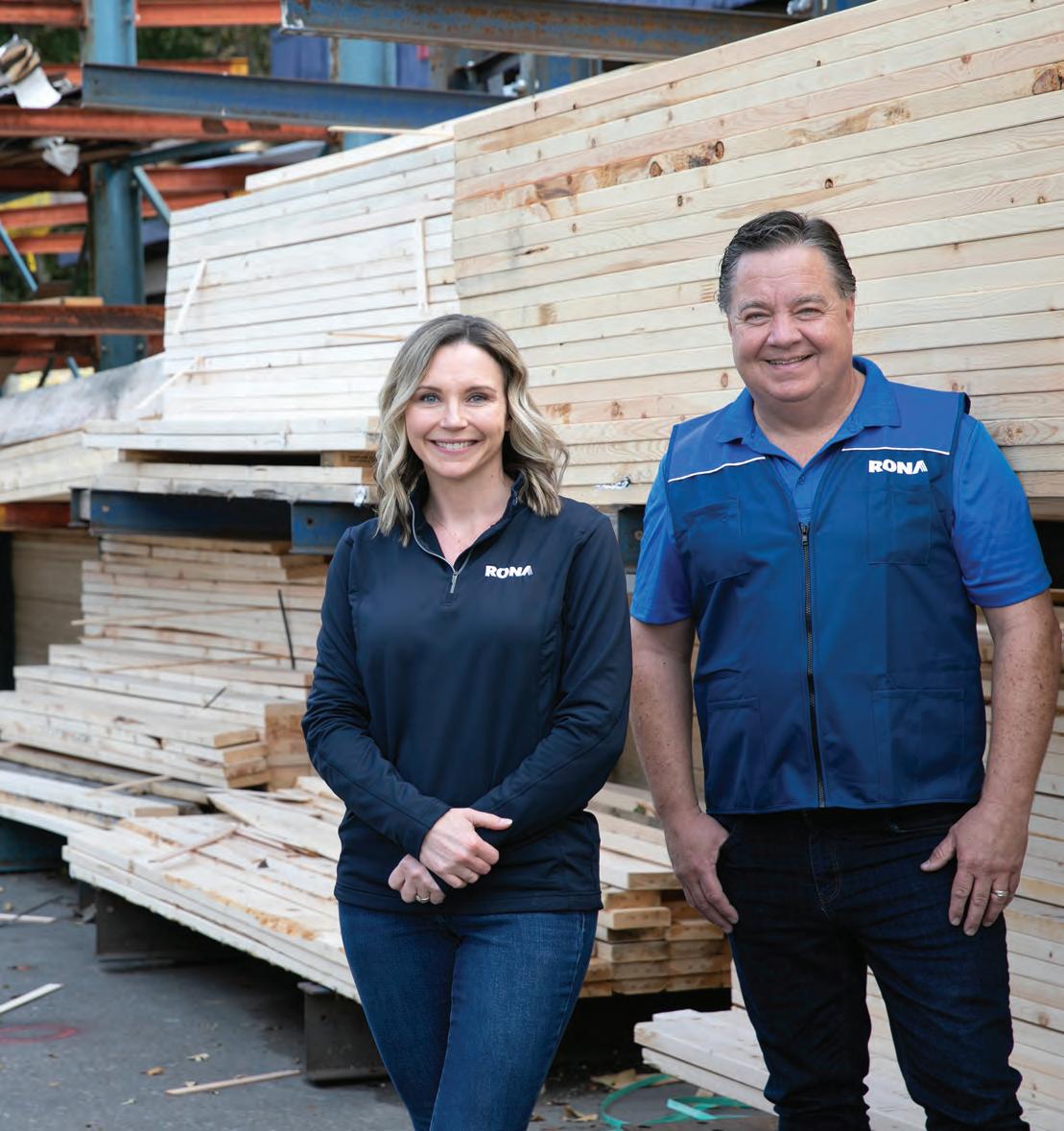
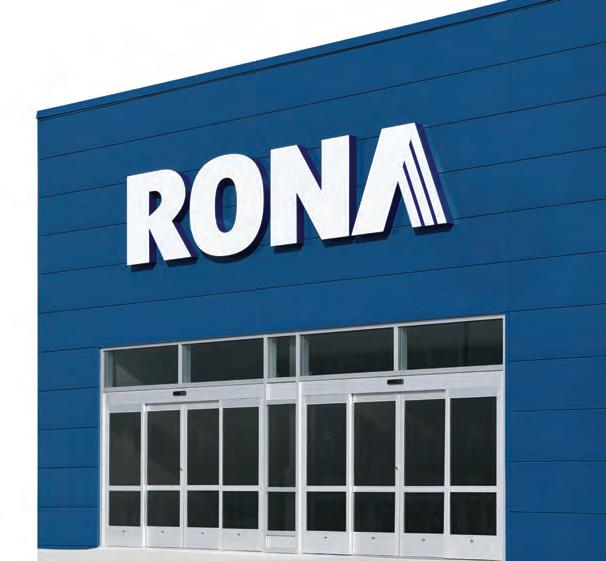
pace if it wasn’t
It really allows us to grow at the speed we want.’’
with Aeroplan. Starting this summer, cardholders will be able to redeem points at Home Hardware stores.
Home Hardware is in good company. Empire Co., parent of grocery chain Sobeys, also dropped Air Miles and actually acquired a stake in the Scene+ rewards program. Sobeys has been exiting the Air Miles program on a region-by-region basis. It had expected to be free of the program during the first quarter of this year. Begun as an initiative between ScotiaBank and Cineplex, Scene+ has expanded beyond movie tickets
will acquire the program. But analysts say there could be additional suitors.
Arguably the first loyalty program in Canada was the 1958 introduction of Canadian Tire’s “money.” It was the brainchild of A.J. Billes, one of the two brothers

to include grocery and pharmacy, restaurant chains such as Swiss Chalet and East Side Mario’s, tech retailers like Apple and Best Buy, and travel through Expedia.
Having so many partners bail out on Air Miles, and the rise of new competitors, has taken its toll on what once was the premier loyalty program in Canada. Just before press time, Loyalty Ventures, the parent company of Air Miles, filed for bankruptcy protection in both the U.S. and Canada. Air Miles’ largest partner, the Bank of Montreal, has announced that it
who founded the company, who said that having an advertisement in the wallet of almost every Canadian was just too good an idea to pass up. Still a leader in loyalty programs, today Canadian Tire has reinvented its rewards platform in innovative ways.
Canadian Tire’s loyalty program today is called Triangle Rewards. It provides an umbrella for all of Canadian Tire’s banners, including Marks and PartSource. But Canadian Tire is not alone in going its own way.
As retailers have become larger and more powerful, the ability to pursue their own programs has also become increasingly popular. Says the loyalty program executive: “They want to deal with their own databases, they want to be dealing with their own customers. They want to keep their information to themselves. I think it’s more sensitive now.”
The executive stresses that the heart of data collection is that it’s not personal. These platforms are not trying to get personal data on individuals so much as create a consumer profile that they can cater

to more effectively. “They don’t do this to spy on you. They do this to serve you better and to make sure they have the right products for you in-store, giving you the most relevant offer according to your needs and what you’re looking for. It’s all about creating the best customer experience so that they do come back. But it has nothing to do with your personal life.”
“Loyalty programs help retailers to be more relevant to their customers and increase customer engagement. Retailers have learned and they now have access to resources. They can be on their own, working within their own ecosystems to build their own brands and choose to partner sporadically at a promotional level with other brands if they wish to do so. It gives them more flexibility. And independence when it comes to their marketing strategy.”
The Home Depot Canada is a good example. It continues to expand its Pro Xtra loyalty program, a proprietary points program that provides benefits for contractors.
The enhanced platform is aimed at attracting and serving contractors and builders, which are an important—and growing—part of Home Depot’s business. Home Depot in the U.S. says pros account
Loyalty programs these days are increasingly about the growing business of data collection.

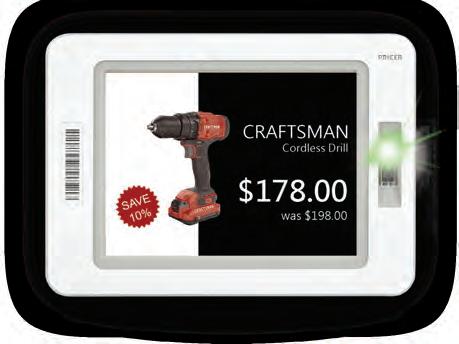

for about 10 percent of its customer base, but approximately half of its sales.
When customers enroll in Pro Xtra, they gain access to specialized perks, including business tools to better manage and grow their businesses and exclusive sales both in stores and online. The program offers three tiers, Member, Elite, and VIP, to reward pro customers with additional benefits according to their spend.
Ken Hughes sees elements like points programs as part of a larger vision of the future of retail that dealers would be wise not to overlook.
Hughes is a consumer behaviouralist affiliated with University College Cork, Ireland. An internationally renowned speaker on retailing, Hughes believes that success in retail will always require retailers to understand their customers. But Hughes urges retailers to go beyond that thinking.
in the middle of a virtual map of services and products, which will all now come to that individual. “We even have restaurants coming to us,” he notes. “Everything has circled around the customer.”
Through all that the digital, virtual world embodies, it will remain crucial to maintain the capacity for connecting with other people. For retailers, the idea of the “customer lifetime model” is still strictly transactional, which is no longer enough. The connection has to be deeper; it has to be real. “We need to get to that place with our customers. We need to give them some reason to connect with us as a brand.”
That’s where loyalty programs come in. Their real advantage lies in the data, some-


Canadian Tire’s overwhelming success with its Triangle Rewards program is instructive. The Triangle name was a way to do two things. First, it provides an online update and alternative to the storied Canadian Tire money. Second, it is a way to offer a unified loyalty points program across all of Canadian Tire’s retail banners, including PartSource, Helly Hansen, and Marks. Today, the retailer claims that 70 percent of Canadian households are Triangle members. And those customers spend more, and more often, than non-members.
“You have to get inside the head of today’s consumer.”
Hughes talks about the “blue-dot consumer” in a GPS world, someone who stands
thing that companies like Canadian Tire are counting on to drive its awareness of who its customers are and what they want.
A good loyalty program has to be integral to a retailer’s message. Canadian Tire “money” began 65 years ago. While a great draw for customers, it provided no access to those customers’ behaviour. In recent years, as sales moved online, the Tire has looked for ways to update its iconic Canadian Tire money and move customers to an online portal. Now, the Tire is arguably our sector’s loyalty program leader.
“In Q3, we effectively engaged our loyalty customers and loyalty sales grew to $2.7 billion, an increase of four percent,” said CTC president and CEO Greg Hicks following the release of the company’s 2022 quarterly results. “Overall, loyalty sales outpaced non-member sales in the quarter, a trend we expect to continue. So we are increasingly laser-focused on driving member engagement.”
The data generated by loyalty programs, if used properly, can support the retailer’s focus on that blue-dot consumer, making sure they are in the centre of a retailer’s marketing efforts. But like e-commerce and customer service, a loyalty program can’t be a tack-on piece of your brand. It has to be a living part of it.
Retailers have learned and they now have access to resources. They can be on their own when it comes to their loyalty programs.
”


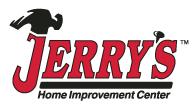




























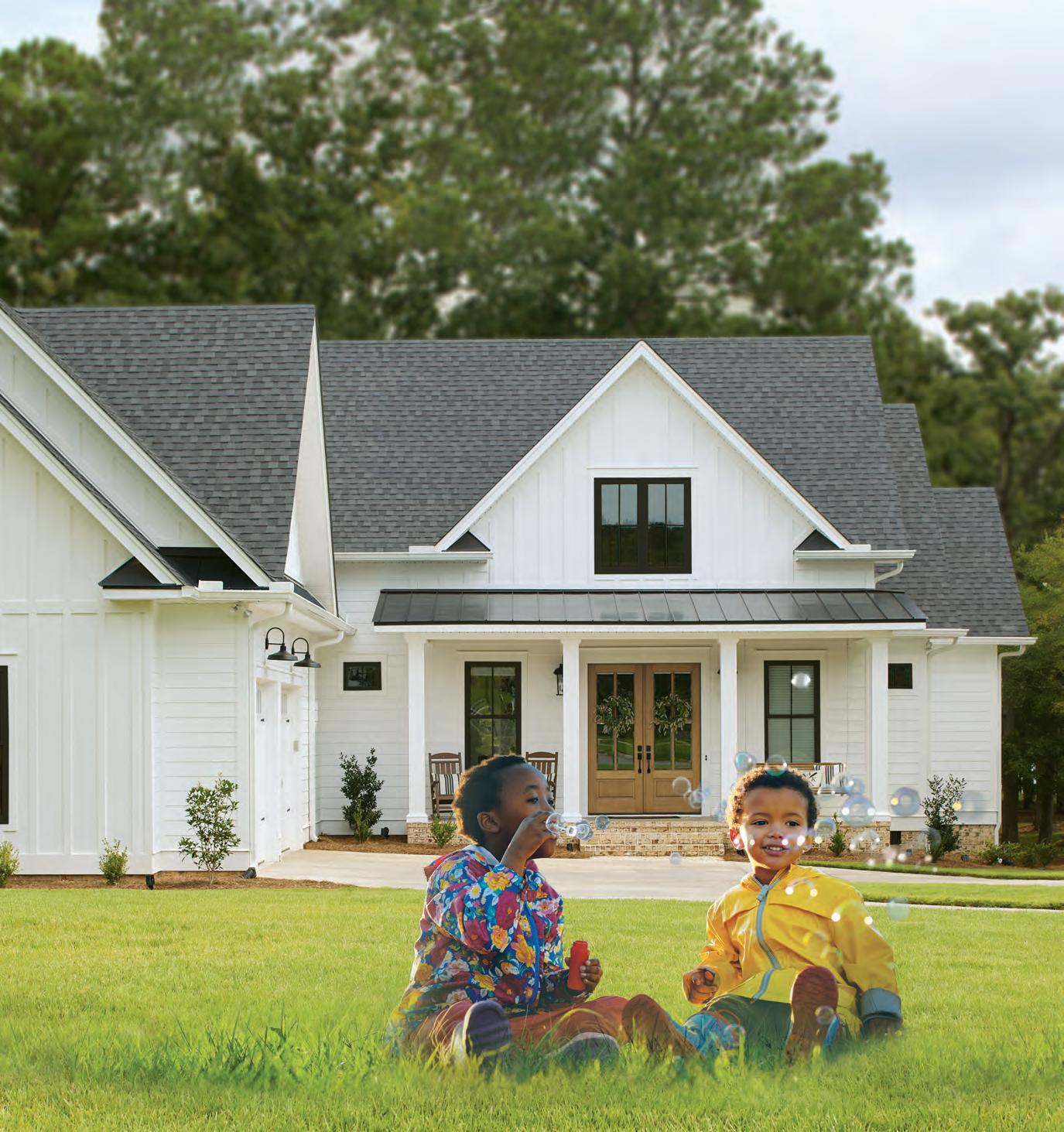

JELD-WEN® hybrid windows open your home up to the beauty of the outside world with industry-leading efficiency and exciting style and customization options.
Available with Dual-Pane or Tri-Pane glass, these ENERGY STAR® certified windows offer increased insulation and sound abatement to keep your home comfortable and quiet all year round.

The aluminum-clad vinyl construction is durable enough to handle the Canadian climate with little-to-no maintenance. Plus, they’re available with FiniShield™ technology, a revolutionary interior laminate finish that protects against daily wear and tear and fading better than any traditional paint.
6X ENERGY STAR ® CANADA MANUFACTURER OF THE YEAR FOR WINDOWS & DOORS
FINISHIELD ™ IS MORE DURABLE THAN STANDARD PAINT
ALUMINUM-CLAD VINYL WINDOWS ENHANCE CURB APPEAL
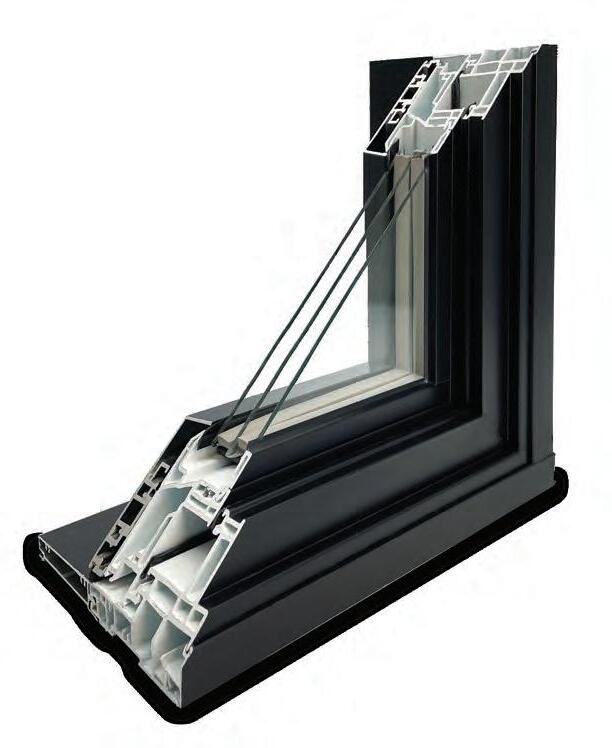
ENERGY-EFFICIENT OPTIONS IMPROVE HOME COMFORT

An interview with MICHAEL ALLEN and STEPHEN ALLEN about the expansion of B.H. Allen Building Centre from one store in North Vancouver to additional stores in Powell River and Salmon Arm, B.C.
RONA B.H. ALLEN BUILDING CENTRE LTD. is one of the largest RONA independents in the country. Now with three stores in B.C., the business got its start in North Vancouver as a Hometown Home Centre before becoming a Beaver Lumber franchised by a former Beaver executive, Bruce Allen. Bruce is still involved in the business after almost 60 years in the industry. Today, his sons, Michael and Stephen Allen, are at the helm of the day-to-day operations. They recently sat down with us for an interview, shortly after the news that RONA had been sold by Lowe’s Cos.

Everyone on our team plays a role, whether they are working in our stores a few hours a week or full-time. It truly is a team effort from everyone on our great staff.
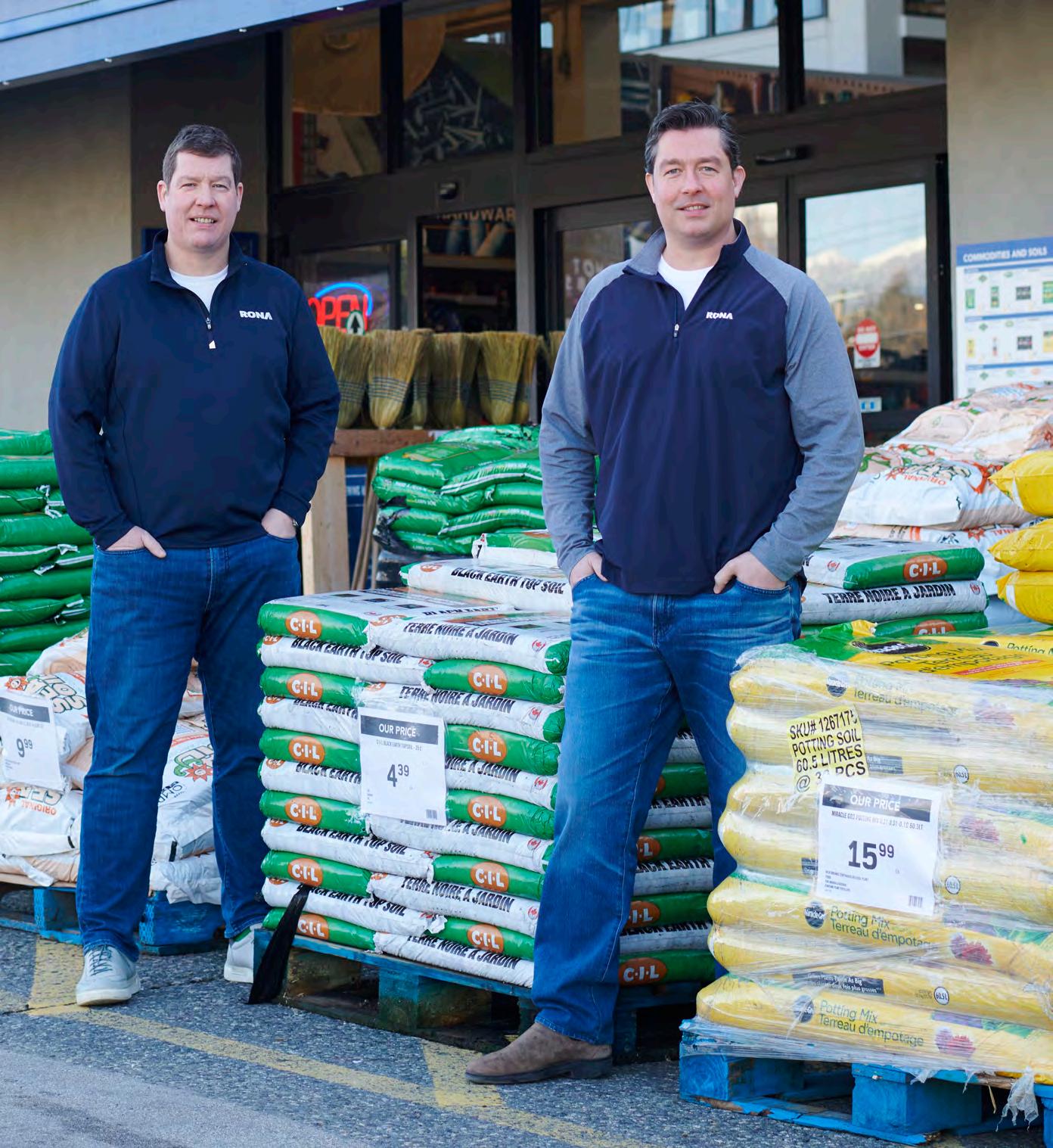
Tell us the history of your first store in North Vancouver.
MICHAEL This location in North Vancouver was a Hometown Home Centre owned by Crown Zellerbach. My Dad, Bruce, was the vice president of Beaver Lumber’s B.C. division from 1983 to 1987. Beaver wanted my dad to move back to Toronto, which he and my mother Audrey didn’t want to do. And Beaver was also looking for a franchisee for this store and they were unable to find one. So, he opted to franchise the store himself in 1987. He had started with Beaver Lumber in the late 1960s. Then he moved to Toronto in 1973, the day after he married my mom. And he became the executive assistant to the first-ever president of Beaver Lumber.
Beaver Lumber got bought out by Home Hardware in 2000, but your family’s store switched to RONA in 2004. You must have been one of the first RONA stores in western Canada?
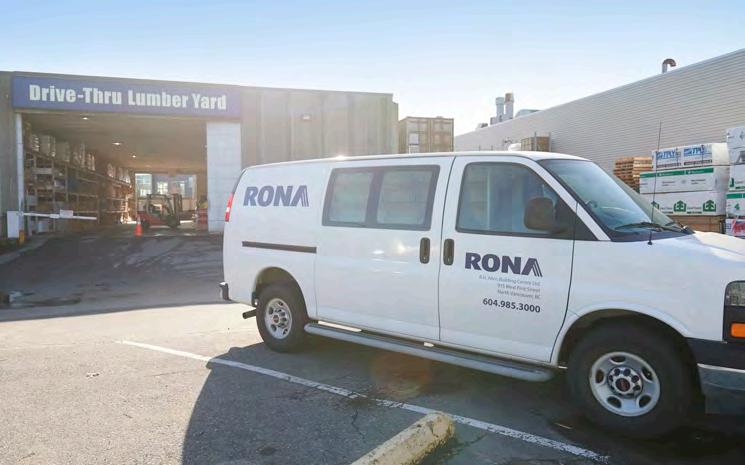

STEPHEN I believe we were the fourth RONA independent in western Canada. I believe Portage La Prairie, Manitoba, and Black Diamond, Alberta, were the first couple. And I believe Bill Cosulich in Campbell River, B.C., was also there before us. He’d had an old Do-it Centre.
You both turned 40 years of age in the past year. You must have been around 22 when your father decided to join RONA. What were your paths into the business?
STEPHEN I worked at the store for a few years in my early twenties and I left around 2008 for seven years. I worked in finance for Canadian Western Bank. I started as a management associate, which was a fancy name for a trainee, and grew to become a senior account manager. A big part of my
“When we renovated our store, we wanted a look that would be friendly and welcoming. And we needed something unique to us. Dealing with BMF was a great experience. They related to us. They were creative.”


Stephen Allen joined his father and brother in the family business after first working in finance for Canadian Western Bank, where he was responsible for a portfolio of large family businesses. He got lessons in entrepreneurialism that are still useful today.
portfolio was large family businesses, so it was useful. Around 2015, the office manager of the North Vancouver store was retiring. It was actually Michael who approached me. He said, “Look, we’re going through a transition here. If you want to come back, now would be the time.” So, I came back. With our expansion my role has morphed to be more of a controller today, looking after the financial and HR side of the business.

MICHAEL I probably wanted to be a part of this business when I was six years old! I’ve always wanted to do this—really, do what my dad did! Basically, I had finished my post-secondary education and loafed around in the summer of 2002. In June
2003 I came here to work. And then in July 2004, my dad relieved the store manager and we began the process of me becoming that manager. We actually didn’t replace that person until literally May of 2022. So, between my dad and me, we more or less ran the place as owner and GM. And I learned as I went along.
Your business is well-known as one of the early adopters of e-commerce among RONA independents. Can you tell us about that?

STEPHEN We were one of the first. There was us and Wayne Filsinger in Guelph, Ont. We got support from Valerie St-Germain at RONA—who is no longer there. It was
Michael Allen says he knew he wanted to be a part of B.H. Allen Building Centre Ltd. when he was about six years old. “I’ve always wanted to do this. Really, do what my dad did.” He joined the business full-time in the summer of 2003, after finishing his post-secondary education.







in 2017. There was a learning process and I think they sort of used our trials and tribulations to set out the road map for the other dealers. E-commerce has been a great addition to our business, for sure. We are the number one independent RONA in B.C. for online sales.

Can you put a percentage of sales on it?
STEPHEN We are probably three or four percent. In the heat of it, in Covid, it was close to five per cent. But obviously today we aren’t doing Covid sales online, so it’s relatively scaled back.
We are very proactive with the online business. We promote it in-store to our customers. They come in here and, if we
don’t have something, we take them to a computer, or they use their phone, and we encourage them to do the order. RONA has been a great supporter of online sales in providing a user-friendly platform with timely delivery.
Can you tell us about the circumstances that led to you opening your second store in Powell River?
MICHAEL Well, the Powell River store dates back to the 1960s when it was an IRLY Bird location owned by a group called Burg and Johnson. And they went through some troubles in the town, had some hard times. In the mid-90s, a gentleman named Pat Hull became the GM and the staff bought the
business from Burg and Johnson. In 2009, they switched to RONA. They operated it about ten years that way. Bruce and I were at the WRLA show a few years ago, and Pat—who had become a good friend—was telling us about his flooring business, which was having problems. We said: “Forget the flooring business, get into the hot tub business!” We connected Pat with our hot tub supplier, Beachcomber, and he had the showroom all set up and we set off to visit him as we had promised—it was 2018.
So, we toured the store and then we toured the town. And Pat said, ‘Why don’t you buy this off me?’ He had bought a ranch in Alberta and he was planning to retire. We flew home that day and we thought, ‘This is an opportunity!’ And we went for it. It’s
been a great decision and we love the community. We have now built a house in the community and we spend a good amount of time there and we really love it.
How did your third store, Salmon Arm, come about?
MICHAEL Well, that’s an interesting discussion. In 2004 we built a family cottage on Shuswap Lake, which is about 20 minutes out of Salmon Arm. We all thought that it was the logical location for a second store. We spent the summers there as a family. We had tried to purchase the Salmon Arm store off of RONA once—when it was a corporate store. They (RONA) ended up selling it to another dealer, which was fine. Unfortunately, that dealer eventually
experienced some problems and Stephen and my dad started negotiating with that person in 2019—and then Covid hit. The negotiations tailed off and RONA kind of pulled back on it—and new projects— too. Eventually that store had to close. We thought it was dead in the water. And then a gentleman I call the ‘town crier,’ the town hero, really, named Bill Laird, swoops in. And he buys the property and my dad got
in 2017). We think it is a really good fit. They are learning about us and we are learning about them but it’s been very positive.
Let’s talk about the renovations of both your Salmon Arm and your Powell River stores. They were both done by BMF?
STEPHEN We have no problems given BMF a good plug! The Salmon Arm store had been closed, as we said, and it was very run down.
in contact with him. And then we had a handshake agreement and a list of building and store improvements that had to be done in order to give the City of Salmon Arm a proper home improvement shopping experience. We started the project in July 2021 and we opened in April 2022.
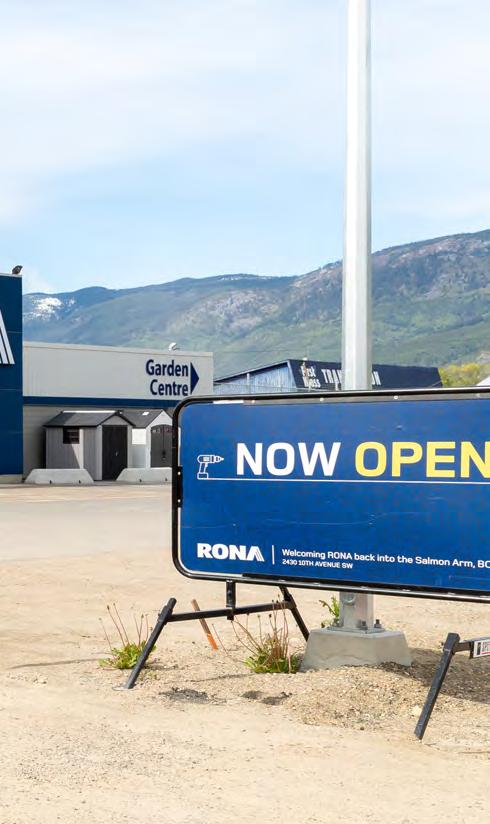
Is there a thought about a fourth store?
STEPHEN Yes, we love the business and we’re really enjoying these communities. Getting involved, whether it’s the hockey teams, community events or charity work. And, yes, we are always listening, that’s for sure.
It was about 12,000 square feet. Today, it’s a first-class experience with 24,000 square feet of retail and a 6,000-square-foot garden centre. In my opinion it is absolutely beautiful.
What are your
impressions of Sycamore Partners, the private equity firm based in New York City who have purchased Lowe’s Canada, including RONA and Réno-Dépôt?
STEPHEN Very positive. They came out to Vancouver and we had a store tour here. We met with them for a couple hours. The impression here is that these guys are very committed to the Canadian market. We believe they have a good understanding of it, given what they’ve done with Staples Canada (Editor: Sycamore acquired Staples
The Powell River store … we believe the renovation is the direct reason that we have seen tremendous growth in that market. The offering that we were able to present, after working with BMF, is second to none. And I think redesign and renovation is something that is undervalued by many dealers. I know they are expensive to do—but I think we paid back the cost of our renovations in about 18 months in Powell River. It’s a total transformation from what it was before, at both stores. It’s a lot of work. But when you’re thinking long term, it’s worth it.
Stephen, here’s a finance question. How did you possibly forecast for the last two or three years, during the pandemic? Prices of products have been so volatile.
STEPHEN You couldn’t forecast for what transpired during COVID. We thought early on we would have to close and we were very fortunate to be considered an essential
Today, the Salmon Arm store is a first class experience with 24,000 square feet of retail and a 6,000 square foot garden centre. In my opinion it is absolutely beautiful.
business. Ultimately, our businesses were never busier than during Covid. When you are that busy, when you are experiencing that much growth, you don’t worry about things that are beyond your control, such as lumber prices, commodity prices. We were more concerned about our staff and our customers. Going forward, we are not going to see Covid levels of business. And today, we have inflationary and economic pressure so now we have to be conservative in our estimates. We are in the customer service business, first and foremost. And if you do that to the highest level, sales will follow.
Are the supply chain nightmares behind us? Are commodity prices down to pre-Covid ‘normalcy’?

MICHAEL We hope so. We are seeing reasonably good pre-Covid pricing now. Sheet
goods are definitely normalized in price. Commodity prices are lower. But, in terms of the hardware side supply, I give RONA full credit. We didn’t have the shortages of PVC and ABS and lots of other things that other groups had. Of course, some products were unavailable. But the cost of hardware goods has gone up. And that puts pressure on our margins so that, eventually, you have to increase prices. Ultimately, we fall behind and we take a beating for our customers until we have no choice but to revise the pricing.

We’ve covered a lot of ground. Thank you for the interview. Anything else you would like to add in closing?
MICHAEL I want to say that our family, our parents Bruce and Audrey, my brother and I, and our sister Nancy, we love this industry. We love the communities we are in. We love the customers we serve. We love the people at RONA. Everyone on our team plays a role, whether they are working in our stores a few hours a week or full-time. It truly is a team effort from everyone on our great staff.

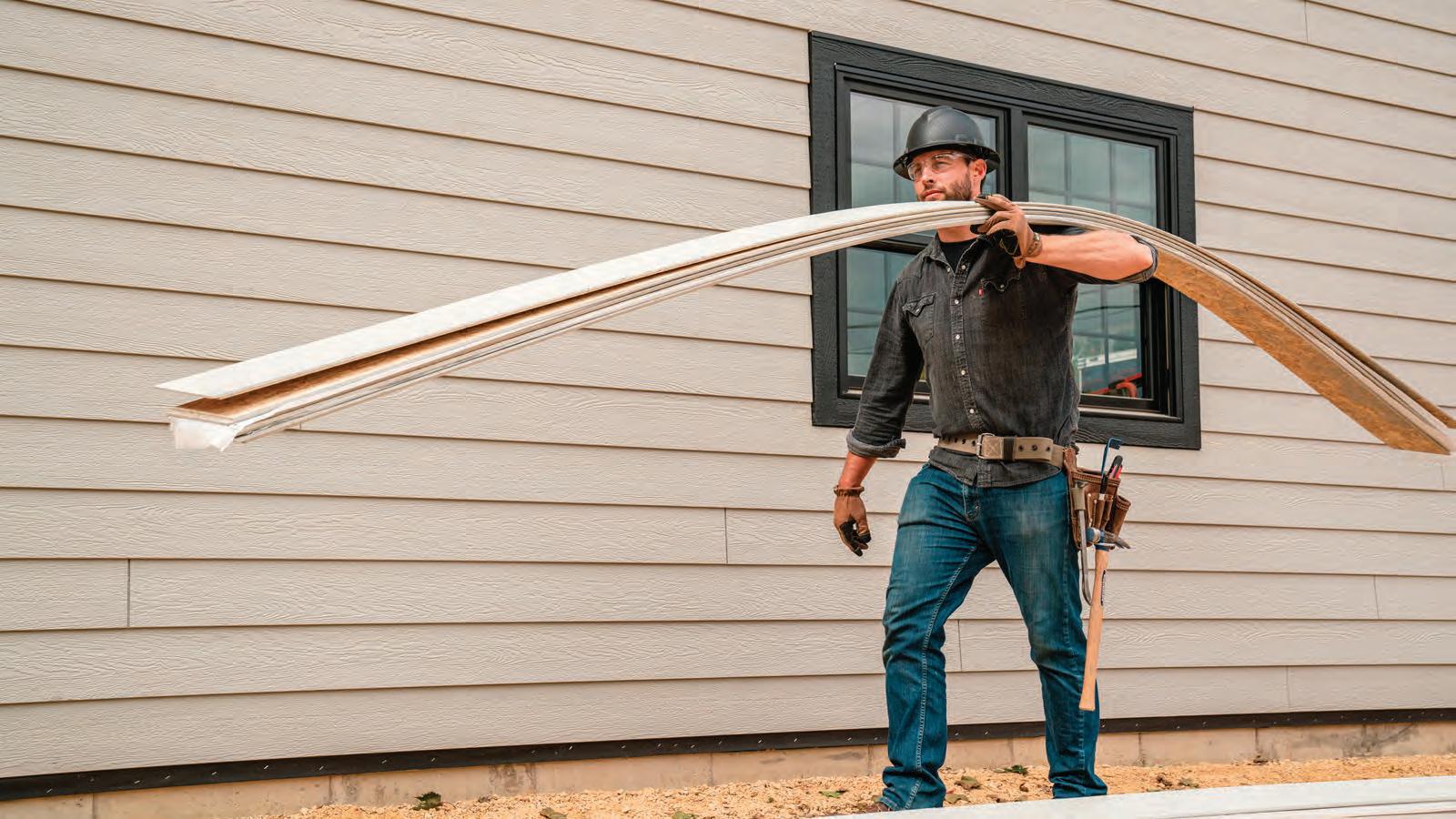







The pandemic building boom saw the combined wholesale sales of CANWEL, GILLFOR, GOODFELLOW, and TAIGA reach almost $7 billion. Rampant demand and inflation have pushed their collective sales up about 70 percent in just three years. Now, with the supply chain crunch behind us, dealers hope that being placed ‘On Allocation’ is a thing of the past.
BY STEVE PAYNEIs the madness over?
While soaring grocery prices and continuing inflation continue to make unwelcome headlines, our industry’s wholesale building materials distributors seem to have returned to a “new normal.” At least, supply-wise. This tentative new stability comes after three years of pandemic-fuelled supply chain disruption that drove the price of SPF lumber up to triple its pre-Covid levels. That average price at the mills was $558 per thousand board feet in March 2020, before the Covid restrictions began. At its pandemic peak in June 2021, SPF had more than tripled to $1,697, according to Natural Resources Canada.


Plywood prices also tripled in the same period. But that was dwarfed by what happened to OSB. That essential commodity hit almost five times its pre-pandemic mill price by the summer of 2021.
But that’s almost two years ago now. So, is the building materials supply chain recovered? Are we finally good—at least for now?
“Yes, I would say that most of the supply chain issues are behind us now,” said Russ Permann, president and CEO of Taiga Building Products, Burnaby, B.C. “We’re not having trouble accessing materials and getting things where they need to be.”

“Sure, fill rates are back up to normal,” agreed Mary Lohmus, executive vice
president, Ontario and western Canada, for Goodfellow Inc., the national distributor in Delson, Que. “There are no real supply shortages anymore on our products.”

“The new normal? Yes, I would say,” concurs Mike Schneider, vice president of business development for Woodstock, Ont.based Gillfor Distribution.
But those optimistic forecasts are based on the question of whether the shortages of building materials—putting dealers “on allocation”—are behind us. When it comes to pricing—and the economy—the crystal ball gets a lot murkier, these executives warn.

“I think that some of the inflationary pressures we felt through the pandemic are easing on a number of products,” Taiga’s Permann says. “But I think we’d be naïve to believe that they will move back to their pre-pandemic costs in many cases. I’m not convinced that all of the increases that we experienced over the pandemic will necessarily be erased. Some of them will be, no doubt. But I don’t think in their entirety they will.”
And there’s another angle to consider. Canada’s building materials industry does not exist in a vacuum.
“It’s also about the world context,” points out Marc Séguin, president of CanWel Building Materials Group in Vancouver. “It’s not strictly North America. There
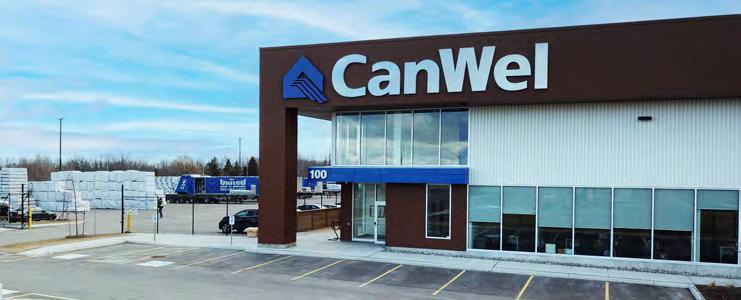
could
be something catastrophic happening overseas.”
Séguin believes that the economy of this industry is still motoring on, based on projects that were started during the pandemic. “There’s still some work in the pipeline, if you will. There are still some jobs to be completed. But if you look at the latest data that came out, housing starts are coming down in Canada. I don’t think that they are going to come down as much as in the U.S., but we will be affected.”
On the other hand, there is the renovation side of the business, which is highly significant. “I would say that there are compensating dynamics,” Séguin said. “In North America and Canada, the housing stock is getting older. So, even though there might be fewer housing starts, people will need to maintain their properties. And this
has become more apparent year after year because that stock is getting older every year. A part of our portfolio is also directed at remodeling and renovation. There will be some activity that will probably be a bit better than one-time, brand new housing starts.”
Permann concurs on the difficulties of forecasting the year ahead. “There are a number of externalities that can impact our business going forward.” Permann says, in

Mayfair Lumber, the Calgary-based distributor of lumber and commodities, is preparing for further growth as it completes a new distribution centre in Edmonton.
Randy Aikens is the president of the 47-year-old firm, having joined the family-owned business almost two years ago. Mayfair sells throughout the west and into northwestern Ontario. Aikens says that maintaining meaningful connections with customers has been an important part of coming through the past three years of Covid. “We stayed focused on our best customers,” Aikens said.
The new DC in Edmonton supports that focus. The 33,000-square-foot facility sits on four acres. “It’s almost a duplicate of our Calgary yard,” Aikens says, though the Calgary site has 11 acres of land. He adds that each DC will go to market on its own rather than being restricted to a delineated territory.
“It’s more about the connection with the customer than dealing with just one place.” Aikens also hints at further possible expansion for Mayfair. “We’re looking at other locations in the future.”
—Michael McLarneybudgeting 2023, that the company—as it always does—works up a budget for a “likely case.” And then there’s a better-to-best case; and a worst case. “The range between worst and best is pretty wide this year. So I agree that there’s a volatility that we’re factoring into this year (in terms of revenues).”
Schneider at Gillfor forecasts 2023 this way: “There are all kinds of estimates as to whether it’s going to be another booming year or if it’s going to contract a little bit. The phrase that I keep hearing is ‘cautiously optimistic.’ And I think that probably describes us as well in terms of the volume of business.”
“This is not a crystal ball but I think that most of us in the industry feel that
lumber will trade within a narrower range than it has for the last two or three years,” Schneider continued. “And really that goes for commodities in general—not just lumber, not just plywood and OSB—but raw materials in general. I think we won’t have the types of spikes that we’ve seen.”
It’s no surprise, when looking at the results of CanWel, Goodfellow, and Taiga (which are all publicly-traded companies; Gillfor is a private firm and does not disclose its numbers) to see massive leaps in revenues during the pandemic. Before
Following a series of acquisitions in recent years, Gillfor Distribution made headlines last summer for its takeover of another large wholesaler, AFA Forest Products. According to Mike Schneider, vice president of business development for Gillfor, his company is well on the way to integrating AFA.

“We wanted the amalgamation of the two companies to be something that had as little impact internally as possible on customers, vendors, and our salespeople,” Schneider told Hardlines. “We wanted it to be as seamless as possible and, you know, as ‘boring’ as possible. And I think that’s kind of the phase that we’re in, that ‘soft landing’ or integration phase.”
“We are running the Gillfor system redundantly here in Woodstock (Ontario) to make sure that there is continuity of service. But we’ve migrated over to the legacy AFA system. What happens now is that we will take this year to make a lot of decisions on products—which products will be national, which products will be regional.”
Asked if there would be a rationalization of products— since Gillfor and AFA had a few competing products before the merger—Schneider said he preferred to use the word “evaluation.” AFA brings strength in commodity products, while Gillfor is strong in specialty products, so Schneider says there are good “synergies” between the former competitors.
“We’ve been approached by numerous vendors and numerous buying groups on opportunities. And it’s really a fantastic position where we’re having to evaluate these opportunities.”
Schneider said there are several important considerations in play for Gillfor’s management. “Every product line is going to have its pros and cons both financially in terms of margin and ‘yardability’—how well it is accepted in the yard—and transportation. So, there are lots of different ways to evaluate product lines.”
—Steve PayneTREX TRANSCEND®LINEAGE, ENGINEERED TO KEEP ITS COOL EVEN WHEN IT’S HOT * .

Start by designing your outdoor space with the tranquil tones that define your style. Then, lay down the durable decking that has unyielding shell protection with fade, stain, scratch and mold-resistance. You’ll have a clean conscience knowing it is made up of 95% recycled materials and can feel secure with its 25-Year Limited Residential and Fade & Stain warranties.


the pandemic, CanWel’s parent, Doman Building Materials, had sales of $1.334 billion in 2019, which more than doubled to $3.0 billion in 2022, aided in part by acquisitions. Taiga grew its revenues 69 percent from $1.299 billion in 2019 to $2.193 billion


their retail customers. They were forced to figure out new ways of doing things.
“Overall, we did well,” says CanWel’s Séguin. “Our model is slightly different than some of our main competitors to the degree that we have over 100 product
Putting retailers on allocation was the only solution for distributors of building materials. “If you ask us how we dealt with this,” Séguin says, “we tried to treat all of our customer base very fairly. What I mean by that is, when you’re going to allocation, you need to be respectful of your historical supporting customers. And provide them with the volume they deserve. And be careful not to send the products to non-supportive customers. You need to remain ethical and proper in the way you conduct business.”
in 2022. Goodfellow’s sales rose more modestly—but still impressively—up 40 percent from $450 million in 2019 to $631 million in 2022.
All of these distributors overcame tremendous obstacles during Covid—as did





lines—which is by far the most extensive portfolio of products in Canada on the building materials distribution front—and LBM. When you have over 100 product lines you are going to be more affected by supply issues.”



But it wasn’t just Covid that was causing supply chain difficulties, Séguin points out. “If you recall, there was a big ice storm in Texas and this had a major impact on all sorts of things—from chemical suppliers to coaters and painters. We’re the largest siding distributor in Canada with many exclusive brand names like James Hardie, CanExel,

Our role as distributor is to optimize the flow of goods, to optimize inbound and outbound freight.
Maibec Wood Siding, Nichiha, and more. All these folks, they need to coat and paint their products. So the shortages affected their capacity to coat and finish. It was a ripple effect, like a domino effect. It restricted our ability to get all our needs and… it became extremely expensive in terms of supplier costs—and their availability, of course.
Permann says that Taiga’s “pretty significant investment” in its enterprise warehouse management system was “fortuitous,” coming to completion right before the pandemic began.
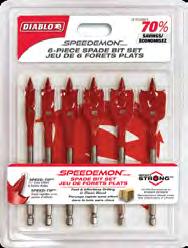
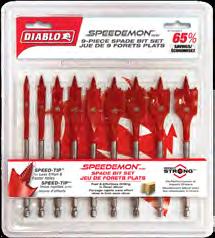

“We started the process of automating our facilities in 2015. We went live on our
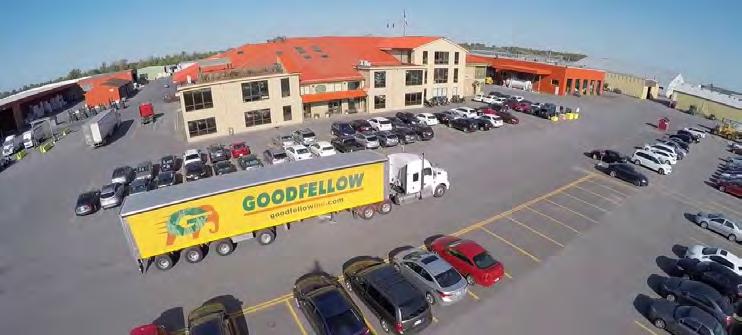



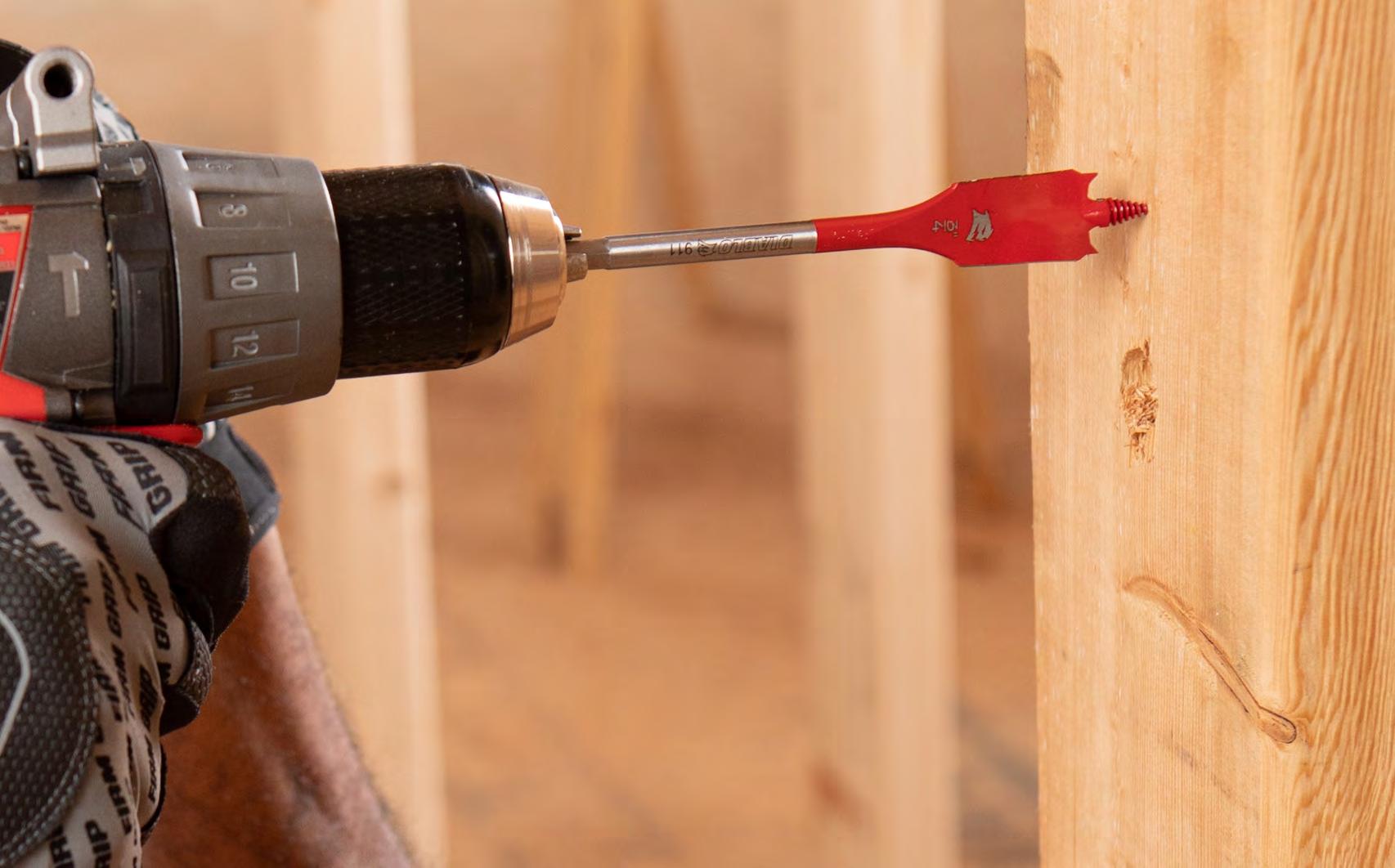
last system (a system provided by Major Data, which had been acquired by Epicor) and completed that just before the pandemic. I mean it was February 2020 that we completed it. Just in the nick of time, really. That (system) was an acquisition that we had made in 2018.
“What Covid really did, was accelerate us on this curve of really leaning into these tools more. And we definitely got more granular in the data, looking at our performance metrics more… If there was a ray of sunshine to come from the pandemic, that would be it for me.”
Goodfellow’s Mary Lohmus said that her firm was “fortunate to have trained staff that were able to offer alternate products if shortages occurred, given our breadth and variety of products. For example, if we didn’t have solid pine, we could offer a similar shape—but finger-jointed.”
But at Goodfellow, there was no mistaking that something was missing when lockdowns ended the ability to send staff out to dealers’ locations. “Product launches were tricky without being able to conduct inperson product knowledge sessions and having salespeople set up new displays,” Lohmus said. Sampling was more difficult, too.
At Gillfor, too, the biggest challenge of the pandemic was finding labour, Schneider said. “The workforce just changed so drastically. Even if it didn’t impact us directly,
even if we had every employee that we needed in the yard and in our administration teams, it still impacted us downstream and upstream. Because there are product lines where we couldn’t get enough product because of the capacity limits due to labour. So if the raw materials were available, but the supplier couldn’t produce… And what we’re really sensitive to is our customers—our retail customers, trying to staff their stores. And not only that, but their contractors are looking for labour to install the product.”
CanWel made a decision early in the pandemic to keep a full complement of staff in its offices and operations, Séguin said. “We put the right protocols in place to protect our people, but we decided that we needed the resources because our customers were relying on us… I think our approach helped us provide service levels. And we did not increase our minimum orders throughout
Nicholson and Cates Ltd. of Burlington, Ont., has entered a management buyout agreement. The deal will involve transition of the leadership to an employee shareholder group consisting of Morgan Wellens, Brian Roger, and Bill Best. Founded in 1930, N&C was taken over in the late 1960s by the Livermore family, who have owned and operated it ever since. Today, the firm distributes a range of building products including Trex, James Hardie, Fraser Wood Siding, and CertainTeed PVC. Along with its DC, the company has three lumber milling facilities in central and eastern Canada.
The company distributes commodity products throughout North America and the world. It also has an industrial panel division focused mainly on the Ontario market, but which also ships to the U.S.
The buyout deal comes as Jim Livermore, CEO and president of N&C, was considering retirement. He wanted to ensure “that all employees, customers, and suppliers continue to be supported and cared for,” the company said in a release. Wellens, currently sales and marketing manager of N&C’s trading division, will transition to president. He is leading the management buyout team. Brian Roger is director of sales and marketing. Bill Best is CFO. The management transition will take place over the next few years. —Michael McLarney
these periods. Meaning that even though something was inflating by 20, 30, or 40 percent, we kept the minimum order dollar value the same. The customer base during the pandemic, and even to this day, they relied more and more on LTL services. They don’t want to buy full truckloads anymore.”
Which brings up the question of fuel prices and their effect on commodity prices. Asked about the effect of fuel spikes on his company, Permann says it’s all part of the game. “I think that’s our job, that’s distribution’s job. That’s what we’re here for is to be the supply chain for the retailer. We have to be thinking about that. These rising fuel costs are obviously inflationary like lots of other things. Our role as distributor is to optimize the flow of goods, to optimize inbound and outbound freight. And we need to be purposeful and efficient in our use of freight. That’s what we have to do.”
The elephant in the room for companies that transport colossally heavy goods in a country that is 5,500 km wide, is the future of fossil fuels. “In Alberta, they are testing hydrogen fuel trucks,” Permann said. “We will pay some attention to that. They are testing electric delivery vehicles and we will pay careful attention to all those things. But I think we have a responsibility to be looking for ways to make sure that truck runs as full as it possibly can. Which is no easy task. But that’s our job.”
“We will be stuck with fossil fuels for quite a while,” observed Séguin. “Especially with the weight that we carry on our runs. CanWel doesn’t own a fleet of trucks— we work with third parties. We have our dedicated partners… and we work closely with all of them to reach the best efficiency levels because it’s in our joint interest. Of course, I would welcome more alternative fuel sources. There is a company in eastern Canada, Lion Electric Trucks, that is producing tractor-trailers that are fully electric. Hopefully we’ll see more of that. It’s starting. Eventually, it’s going to pick up.”


Dealers with installation programs have different strategies to ensure access to reliable contractors
anada’s home improvement boom may have subsided a bit from its recent pandemic-induced pace. Still, dealers managing installed sales programs still face lingering labour and product availability issues that can impact the quality and speed of the work completed, as well as customer satisfaction.
Many dealers, perhaps the majority, direct renovation-minded homeowners to their trusted contractor customers. Some others have cushioned the impact of labour shortages on their workflows by employing their own crews. And one upstart webbased company is gaining market share by acting as a go-between that holds onto a contractor’s payment until the homeowner is satisfied with the project’s outcome.
The common thread that connects these
programs is that contractors are busy. In its 2022 Reno Report, which surveyed homeowners about their home improvement plans, HomeStars, the contractor search site, found that owners would be spending, on average, $25,222 on renovations
they nevertheless reflect still-avid demand with which dealers in the installation game are sprinting to keep up.
Dealers are taking different approaches in their searches for available and dependable pros. Sherk TIMBER MART, a build-
during the period between March 2022 and February 2023, nearly double what they had spent in the previous 12 months. Those projections may have been a tad optimistic, given inflation and rising interest rates. But
ing supply dealer in Port Colborne, Ont., installs about 10 percent of its sales. Guy Sherk, the store manager, says much of that work is kitchen remodels. And his store only recommends contractors “who
We are definitely not scaling back our installed sales programs, but rather are onboarding more installers in order to align with current market conditions.
we have a relationship with, who are in the store nearly every day.” On rare occasions, Sherk TIMBER MART manages the installation, for which it takes a 25 percent cut.
At the other end of the spectrum is Nova Scotia Building Supplies in Blockhouse, N.S. Over the past 15 years, this Castle-affiliated dealer’s installation services department, called All Install Design Centre, has employed its own crews, which currently consist of 10-12 installers and carpenters.
Wayne Nelson, the dealer’s vice president, recalls how his company’s program started modestly, with jobs that included putting up
clotheslines. The business took off when the department began installing doorsteps for a mini-home distributor. Now, between 8-10 percent of Nova Scotia Building Supplies’ sales are installed, with kitchen remodels being a big part of that total. Some of its contractor customers even hire the dealer’s crews as subs.
Most of Nova Scotia Building Supplies’ installers are long-time employees, says Branden Rafuse, its installed sales department’s supervisor. And to avoid the appearance that it’s competing with its customers, the Nova Scotia store “usually backs away

from” jobs other contractors want, says the store’s manager Curtis Saulnier. He adds that Nova Scotia’s prices for installation are “very competitive.”
Finding available contractors in Canada is complicated by the fact that the two largest home improvement retail chains, RONA and Home Depot Canada, each has a robust installation services program that it markets aggressively.

“We are definitely not scaling back our installed sales programs, but rather are


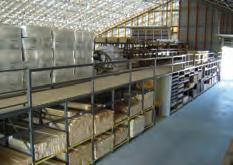
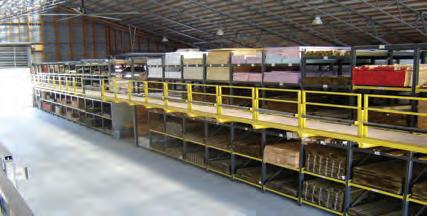
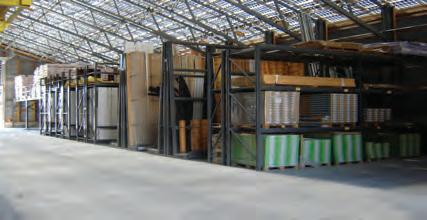
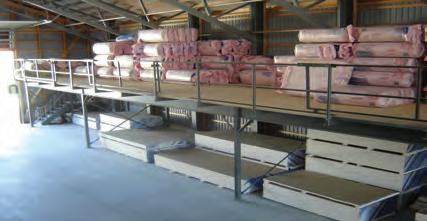


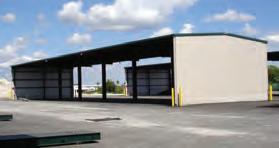

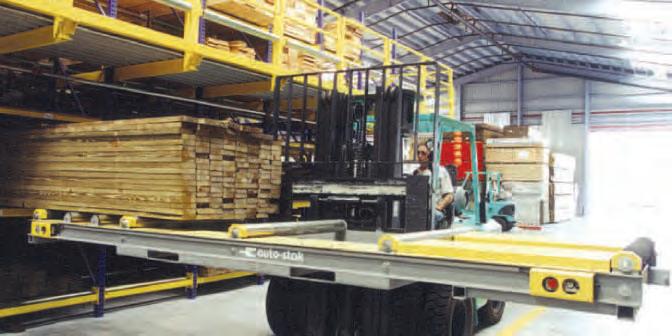
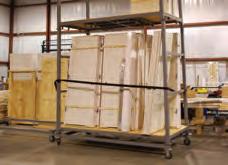
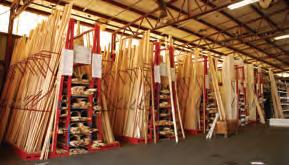
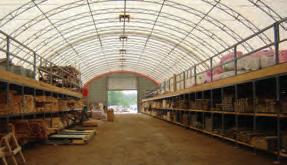
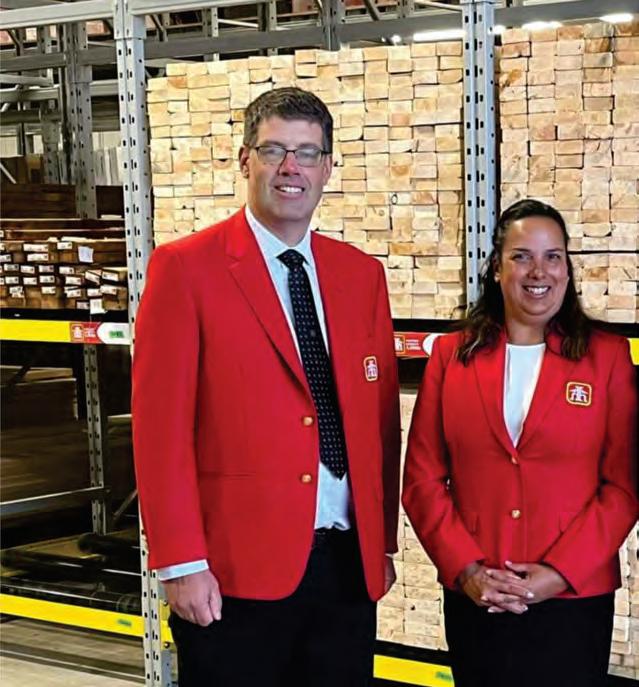
onboarding more installers in order to align with current market conditions,” says Patrice Prud’homme, director of RONA’s installation program. To attract pros to its already large network, RONA has implemented a new customer relations management system to better qualify homeowners and provide quality leads to pros. The retailer has also invested more than $2.4 million to redesign its stores’ signage to generate demand for installers. This year, RONA will conduct its second annual National Installer Meeting for its entire RONA/Lowe’s/Réno Dépôt store network. RONA has assigned territory managers to oversee its stores’ installation activities. And it organizes meetings and training for pros with key vendors.
Jamal Hamad, Home Depot Canada’s senior director of contractor services, notes that installation falls under a larger Home Services umbrella that encompasses equipment rental and “Local Pro” handyman services.
“We’ve been spending a lot of time on improving the customer experience,” Hamad says about the retailer’s installed sales, whose outreach with consumers has been expanded, because of Covid, by digital and online communications, especially for making appointments.
Unlike dealers that let their contractors handle the entire process from the initial meeting with owners to billing, installation
says that his firm is improving its installers’ experience.
customers “are always dealing with Home Depot,” says Hamad. “We see our contractors as an extension of the Home Depot apron.” While he wouldn’t say how many contractors are in Home Depot Canada’s installed sales orbit, Hamad notes that 30 percent of them have provided installation services for Depot for at least 20 years. (Depot uses a third-party service provider to vet and onboard new pros for its program.)
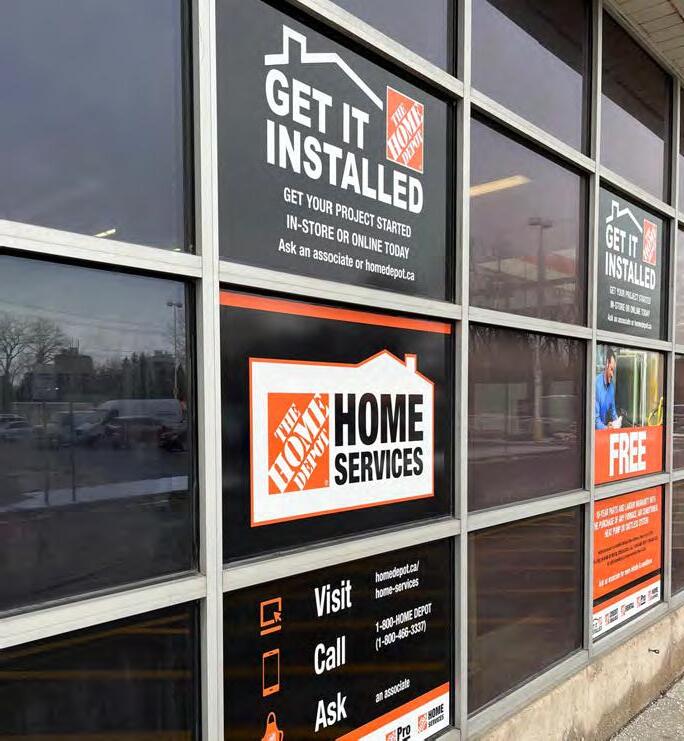
Like every dealer with a stake in installation, RONA and Home Depot Canada have been stung by disgruntled homeowners
posting negative comments on consumer websites about projects that fell short of their expectations or schedules. But Hamad insists that major service problems “are rare,” and when they do arise “we jump all over it. I will fly in contractors to get a job done if I have to.”
Jon Christensen has observed that problems with installation usually crop up on Day 3—when an owner might have buyer’s remorse, or might not be hitting it off with the pro—or at the end of a job, when the owner isn’t happy with the finished work and is looking for someone to blame.
He should know: Christensen is founder and CEO of Bidmii, a Guelph, Ont.-based company that leverages technology to establish greater trust between homeowners and the contractors they hire.
Founded two-and-a-half years ago, Bidmii works like this, according to Christensen and York Barrington III, Bidmii’s director of operations: Homeowners post their

Targeted squarely at store owners and managers, Hardlines Dealer News is a monthly email newsletter with content designed especially for dealers and owners who want to run their businesses at maximum efficiency.

Each issue of Hardlines Dealer News features:
4 N ews to help store owners and managers stay current on the latest trends in their market;
4 Tips for smart retailers who want to identify ways to manage their operations more successfully;
4 Insights to help dealers hire smarter, merchandise better and manage more effectively;
4 Concrete ideas for managing budgets, merchandising products and identifying best practices.
project requests on Bidmii’s website, which Bidmii sends to pros within the owner’s trading area to bid on. The owner chooses which bidder to go with, and remits payment for the project to Bidmii, which holds the money in a trust. Only when the project is completed and okayed by the owner (by clicking “approved” on the website) does Bidmii release the payment to the contractor within 60 days (compared to three or more months contractors normally wait to get paid for jobs, says Barrrington).
This transaction service is free to its users. Bidmii makes money on value-added services that include a premium subscription of $120 per month that gives pros their own website that updates dynamically with photos and reviews of past projects. Subscribers are alerted about projects 48 hours in advance of non-subscriber pros using the platform, and receive a marketing kit with lawn signs, shirts, and other paraphernalia, all with QR codes that lead back to the dealer or pro.
Barrington contends that this setup lessens the liability for the dealer offering installation because the onus shifts more toward the recommended pro hired to do the job. While Bidmii doesn’t get involved in mediating disputes between home-
in early February, Bidmii had just paid out for a $65,000 project in northern Ontario. Christensen says a smattering of commercial projects are being posted on the site for bid.
As of Feb. 1, Bidmii was the transactional platform being used for installation services by 11 Home Hardware stores, including JL’s Home Hardware Building Centre in Guelph, Ont., which has been working with Bidmii since November 2021.
like “a shortage of labor to be found,” meaning that a lot of pros aren’t savvy enough to promote themselves. Bidmiii helps gets their names out to the public. Belisle agrees: “Reliable contractors can be found everywhere. Bidmii makes reliable contractors more accessible to homeowners, and provides a safe and secure platform for the transaction of business.”
owners and pros, “there’s a self-selection process in how we handle the finances,” says Barrington. “Bad contractors don’t get paid, so contractors stay in their lanes.”
Bidmii seems to have hit upon something that was lacking in the buyer-seller relationship. As of early February, it exceeded 3,000 contractors who were using the platform for leads. The average size of jobs has gone from $400 when the company started to $4,000 today. When HHIQ interviewed Barrington

Prior to that, JL’s would recommend or manage installed sales using trusted contractors who were also customers. However, “the contractors we trust for installation are typically very busy with their own work,” says Andre Belisle, JL’s owner. “Bidmii has allowed us to source new contractors to help with installations and also expand our retail business.”
When asked about shortages of pros, Barrington says that the “real issue” is more
Christensen says that Bidmii wants to expand nationally and has already had inquiries from pros on the East Coast and in British Columbia. He notes, too, that Bidmii is in discussions with a 40-location buying group to provide back-end management software.
Sometime this spring, Bidmii plans to launch Reno Now, a “buy now pay later” financing option that Christensen describes as falling somewhere between a loan and a credit card. Barrington says the company is also exploring an insurance option. Digital tech is certainly stepping into the void when it comes to the matchmaking that some customers expect retailers to make between themselves and qualified contractors.
Bidmii makes reliable contractors more accessible to homeowners, and provides a safe and secure platform for the transaction of business.
What’s in Store

Frances Sologuk

Frances Sologuk is the owner of Osoyoos Home Hardware in B.C.’s Okanagan Valley. She shares the story of how her family’s hardware store was “un-renovated” to reveal its historic building materials, reclaimed from a nearby mining camp. The store now serves as a museum of the town’s local history, and it’s a big draw for customers!
Eri Mathy
As head of head of business development and transformation at IKEA Canada, Eri Mathy shared with Hardlines her thoughts on IKEA’s omnichannel strategy, the impact of the pandemic on the meaning of home, and the retailer’s new smaller store concept. Important insights from one of Canada’s most successful home products retailers!
Geneviève Gagnon

An interview with the leader of a five-store chain of home centres in Quebec, La Grande Quincaillerie (The Great Hardware Store). Geneviève talks about her experiences growing up in the family business run by her famous father Yves Gagnon, former president of Groupe BMR, and how she’s making her own mark on the business.

Listen
Derek Smith
A conversation with the Vice President of ACE Canada. Derek shares the expansion track of ACE in this country, which is a division of Peavey Industries based in Red Deer, Alta. ACE offers support for independent dealers across the country who want to grow with their business or pursue the succession opportunities that ACE can provide.
Jim Inglis

We talk to the former pioneering Home Depot executive who looks back on the early years of the company and the skepticism it was met with in the industry. He also delves into Home Depot’s entry into Canada through the acquisition of Aikenhead’s.

Plus many more podcasts to choose from!
free
2022 YOUNG RETAILER OF THE YEAR:
“ Pour nous, le prix du jeune détaillant a permis de renforcir le lien de confiance avec nos clients, employés et fournisseurs. De gagner un tel prix a su démontrer nos compétences de gestionnaire même étant plus jeune.
C’est un prix qui encourage et motive beaucoup la relève.
De plus, la reconnaissance des gens de notre milieu fût impressionnante et nous a touché énormément. ”
“ For us, the Young Retailer Award allowed us to strengthen the bonds of trust with our customers, employees, and vendors. Winning such a prize has demonstrated our skills in management, even as younger people. It’s a prize that greatly encourages and motivates the next generation. ”

DEADLINE FOR ENTRIES IS JUNE 16, 2023


Nicolas Couture’s network of TIMBER MART stores in Quebec is growing, but he isn’t content to rest on his laurels. Now he’s meeting customers’ home décor needs with a passion project on the side.
Nicolas Couture remembers the day the Quebec government announced its first Covid-related lockdown.
“At four o’clock, they announced the list of essential services, and we weren’t on it. I drove to TIMBER MART headquarters, poured a huge glass of whisky, and said: ‘That’s it, we’re going to war now’”.
Couture had served two one-year terms as the youngest-ever president of the board at AQMAT, Quebec’s trade association for home improvement retailers. So he was well-prepared for the kind of government relations the situation called for. Hardware stores were soon added to the province’s essential business list.

“On the politics side, it gives you a sense of what’s up. Richard Darveau (president of AQMAT) is a great guy for it. We like challenging each other; we like bouncing ideas off each other.”
Couture is a man who wears many hats. Whereas his work running a growing network of TIMBER MART stores (currently up to four locations) has him on the ground level as a dealer, his time with AQMAT and at his buying group’s head office has afforded him a wider viewpoint on the industry.
“It gave me a perspective on other people’s challenges and opportunities,” Couture says, reflecting on his stint on the corporate side at TIMBER MART. During that time, the group was sorting out its acquisition of the Ace licence in Canada.
More recently, Couture has branched out into the home décor business. The inspiration for that came from a trend he noticed on his stores’ Facebook page.
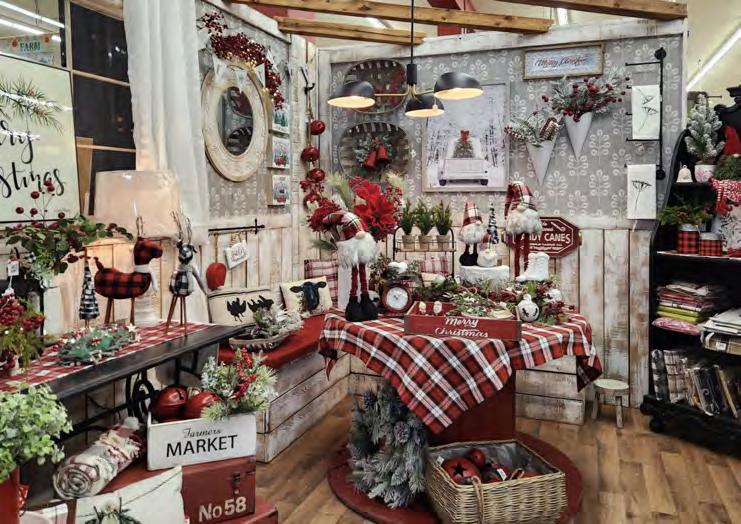
“We’d been doing home décor for 20-odd years. Whenever we posted something about home décor, we noticed that there
was great traction. When we posted hardware we’d lose followers! So, we decided to figure out a way to separate out the two.”
Couture notes than many customers are interested in décor products “but not necessarily wanting to reno everything.”
While “theoretically” hardware and home décor “should be together,” there was no mistaking the fact that the customer bases were not the same. Enter My Home Décor, which Couture runs as a separate business that can ship “anywhere in the world.”
The timing was auspicious, as the new business started up in 2019, right before the pandemic and its attendant boom in housewares sales.
“Retail is very weird right now and we’re competing against brands like Wayfair. Could we make a living on it yet? No.” Still, he says, My Home Décor is “making decent sales.”
That’s no problem for Couture, whose cluster of TIMBER MART stores keep him plenty busy. In the meantime, My Home Décor continues to generate buzz.
“We actually have a cat at the boutique named Timber. We post on the feed and Timber has a fan base!”
Kohltech’s outstanding service, warranty coverage, pricing and environmental sustainability has established our brand as a proud Canadian industry leader.
We deliver innovative, high-performance windows and entrance systems that make your customer’s house feel like home.
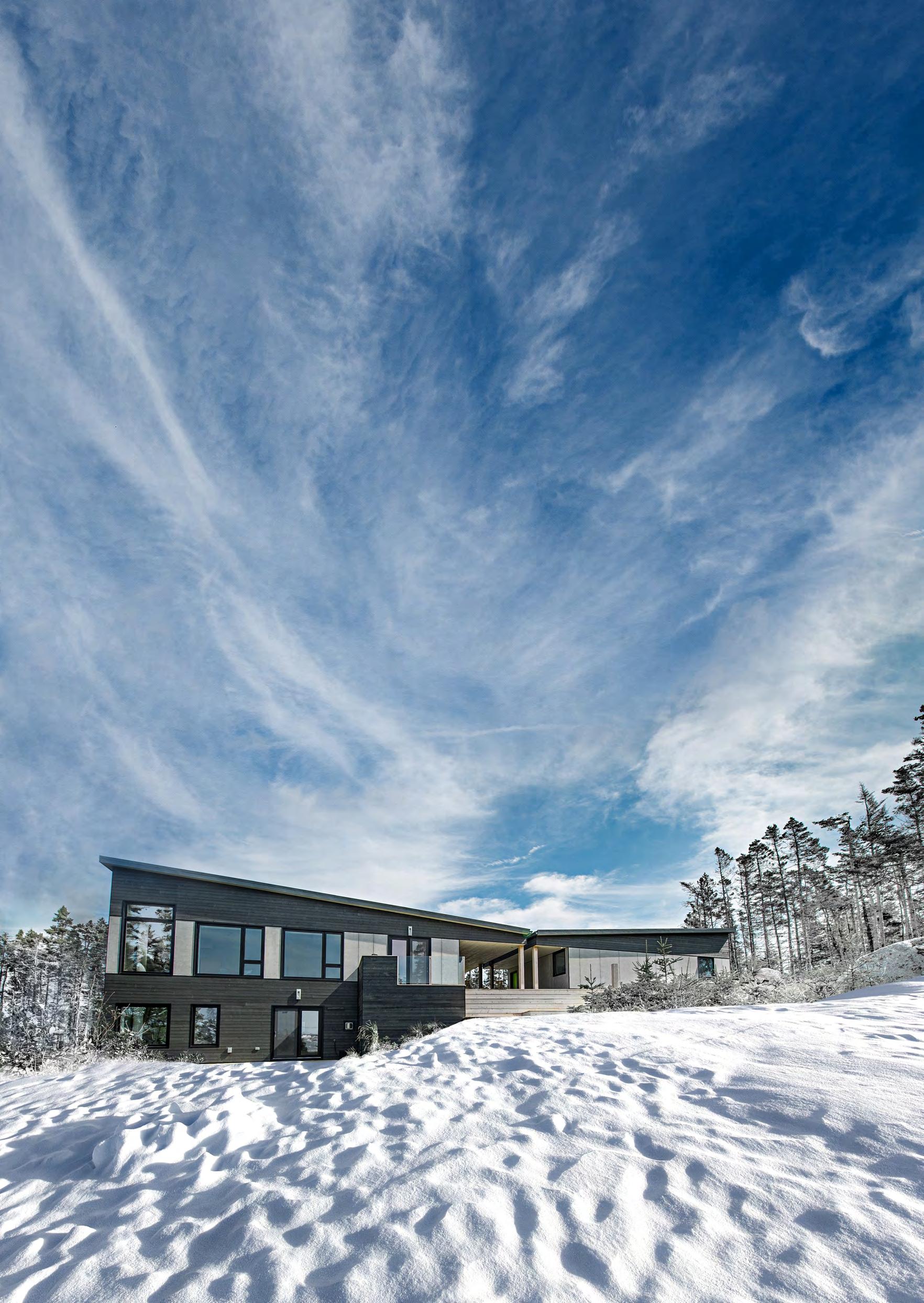
kohltech.com














As an entrepreneur, you are independent and have your own unique way of doing things.
You have built your brand and reputation by delivering the highest level of service and customer experience through a very challenging time, and now you shine brighter than the rest. You are an expert on your business so don’t let your buying group’s corporate brand expense overshadow your brilliance.

Castle successfully delivers the lowest cost of goods and the lowest cost of affiliation. Our record growth validates the strength of our business model. It is time for you to explore a group that is truly committed to your success.
